Lineal Heavyweight Champions

Lineal Heavyweight Champions
Wladimir Klitschko
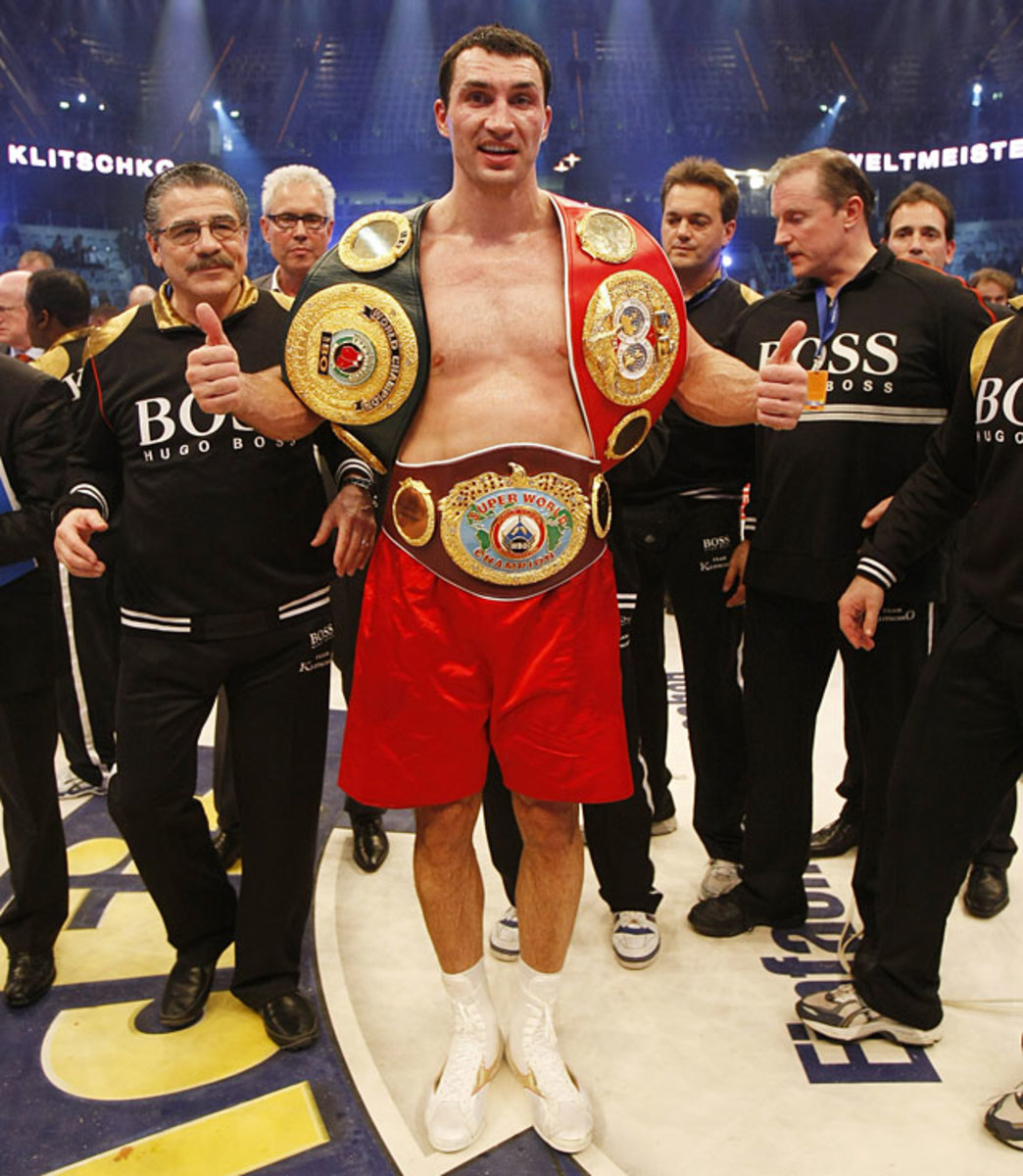
The lineal championship in professional boxing, commonly described as "the man who beat the man," is a notional title intended to clarify the modern hodgepodge of sanctioning bodies and alphabet titles. A boxer can only win the lineal championship by defeating the previous lineal champion in the ring. If the lineal champion retires, dies or moves to another division, the vacancy is typically filled by a box-off between two or more top-ranked contenders. The third and most recent interruption of the heavyweight lineage came in 2004, when Lennox Lewis retired and vacated the championship. Only when Wladimir Klitschko knocked out Ruslan Chagaev in June 2009, adding The Ring magazine title to his IBF and WBO belts, did a recognized heir to the lineage emerge. Klitschko defended his WBA, IBF, WBO and Ring magazine heavyweight titles on Nov. 10 with a unanimous-decision win over Mariusz Wach at the O2 World Arena in Hamburg, Germany. It marked Klitschko's 13th title defense.
Lennox Lewis
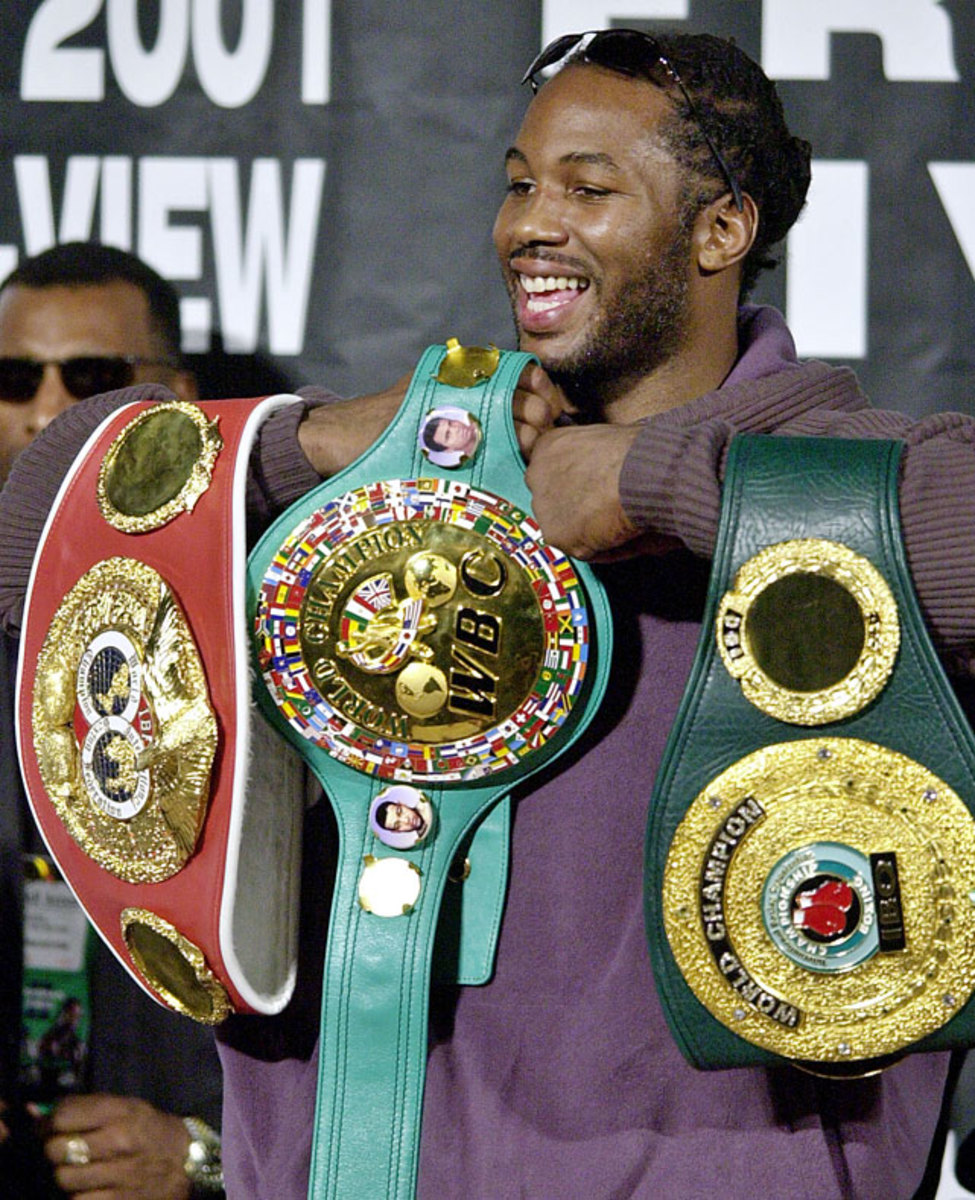
Lewis avenged a stunning knockout loss to Hasim Rahman with a fourth-round knockout to regain the heavyweight title.
Hasim Rahman
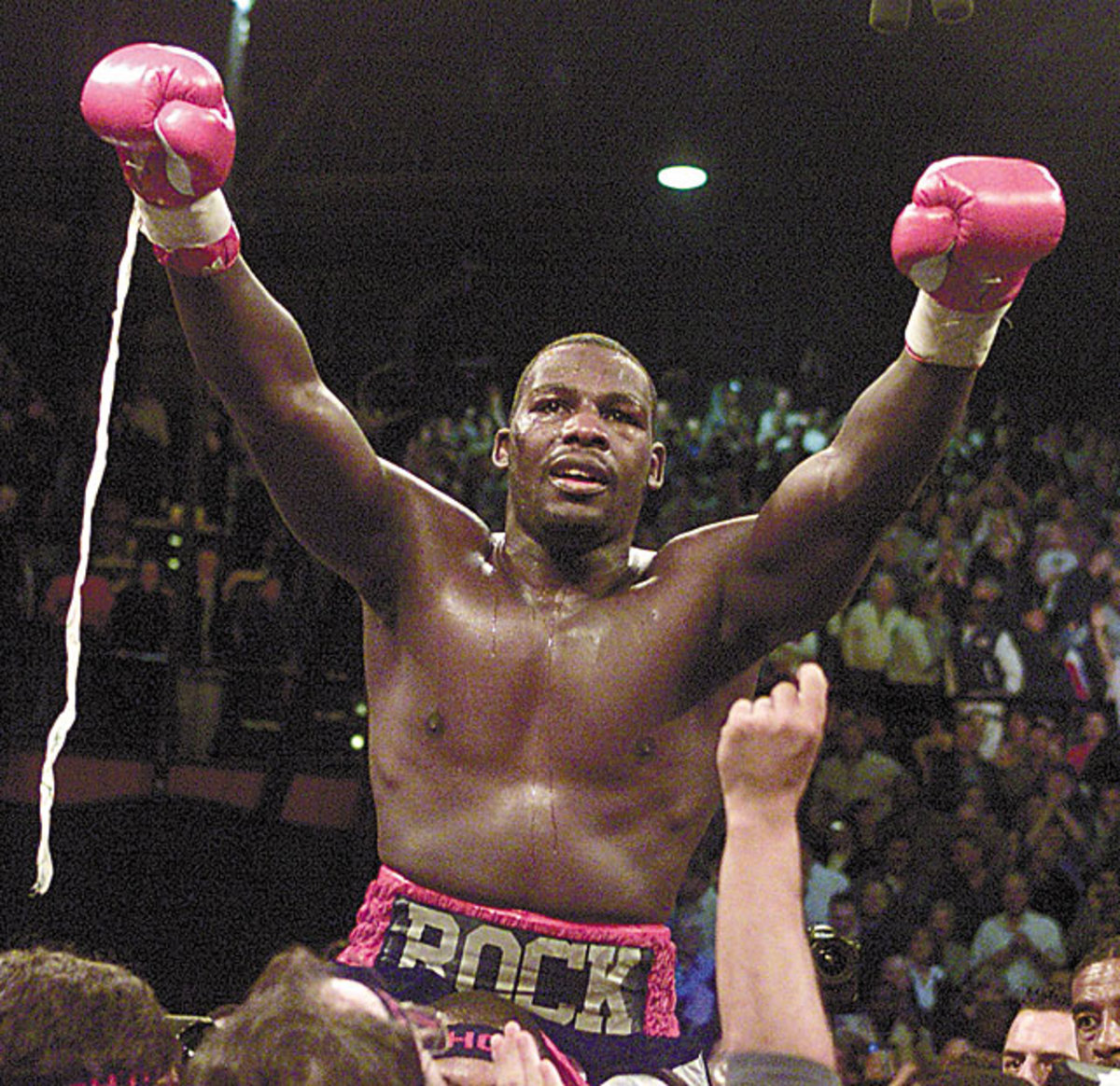
The Baltimore native was a 15-to-1 underdog when he stunned the sports world with a fifth-round knockout of Lennox Lewis to become the undisputed heavyweight champion.
Lennox Lewis

Lewis was declared WBC heavyweight champion in 1993 when Riddick Bowe refused to face him, making him the first heavyweight champion from Britain in the 20th century. He didn't become the lineal champ until knocking out Shannon Briggs five years later. The self-styled "pugilist specialist" went on to unify the heavyweight titles in a two-bout series with Evander Holyfield.
Shannon Briggs
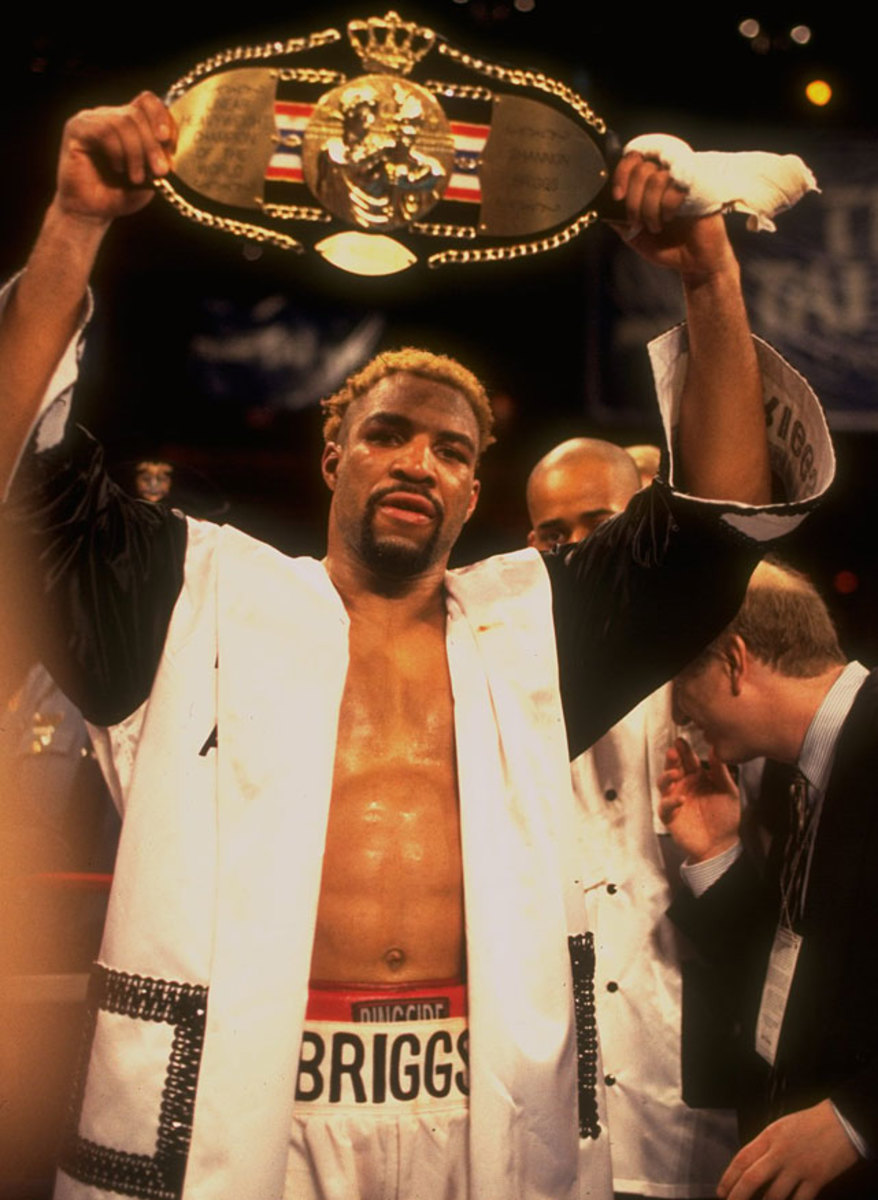
The Brooklyn native outpointed 48-year-old George Foreman in a controversial decision to win the lineal title.
George Foreman

Wearing the same trunks he'd worn 20 years earlier when he lost the title to Muhammad Ali in Zaire, the 45-year-old Foreman knocked out Michael Moorer to become the oldest fighter to win a major title in boxing history.
Michael Moorer
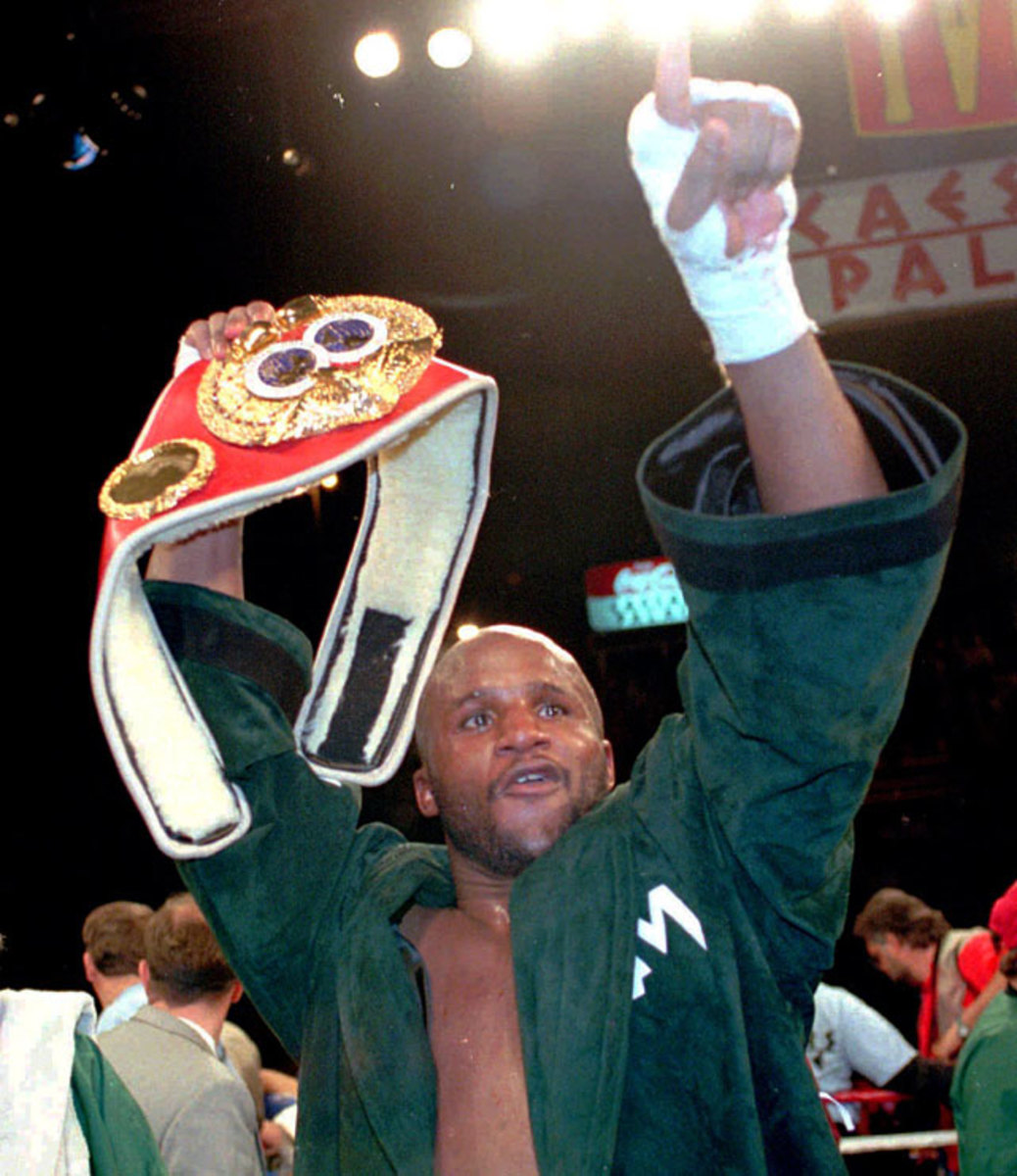
Moorer overcame a second-round knockdown to win a majority decision over Evander Holyfield. He'd cede the title to George Foreman in his first defense.
Evander Holyfield
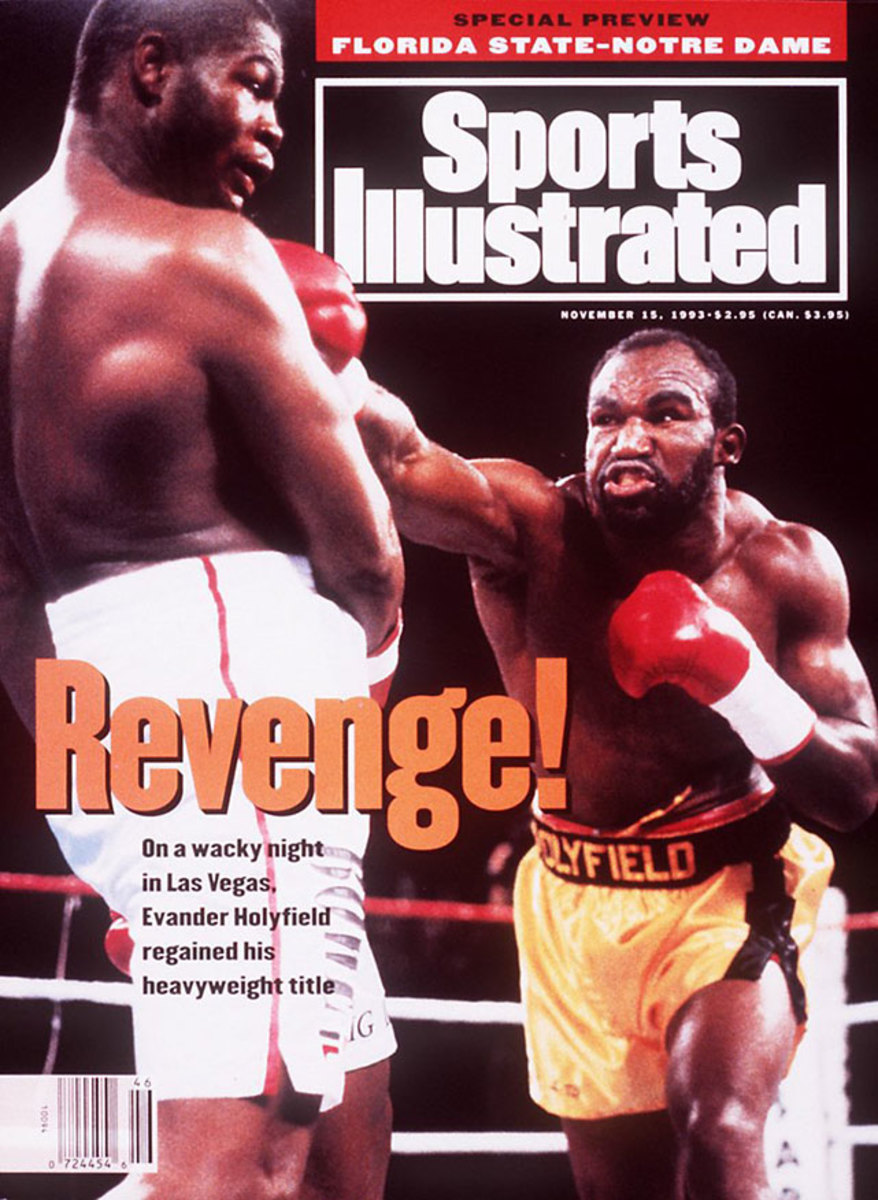
Holyfield regained the title from Riddick Bowe in the middle bout of their legendary '90s trilogy -- the notorious "Fan Man" fight.
Riddick Bowe
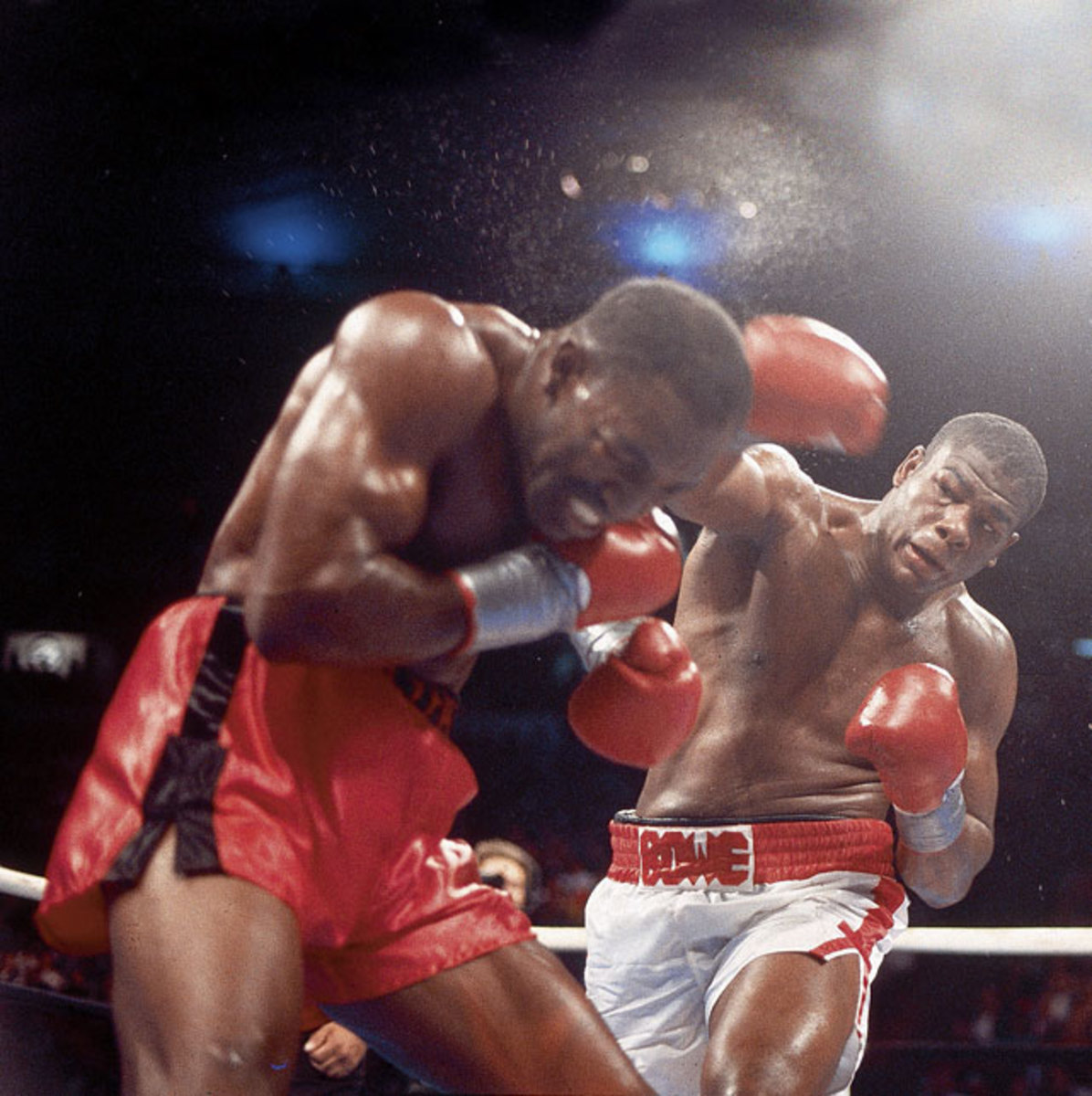
"Big Daddy" Bowe won the undisputed heavyweight championship by a unanimous decision, handing Evander Holyfield his first career loss.
Evander Holyfield

Holyfield knocked out an overweight, underprepared Buster Douglas in the third round at the Mirage Hotel & Casino to win the undisputed heavyweight championship.
James "Buster" Douglas
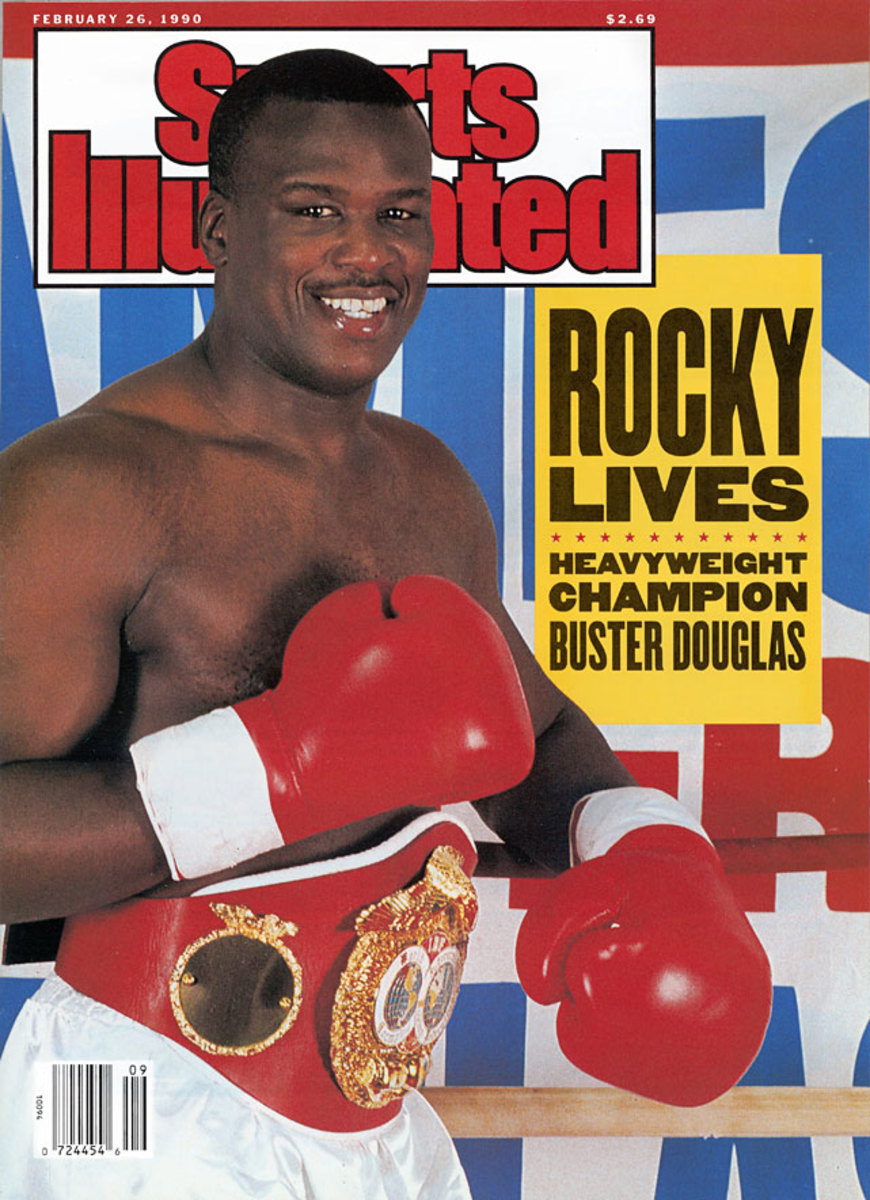
In one of sports' all-time great upsets, Douglas -- a 42-to-1 longshot -- knocked out Mike Tyson at the Tokyo Dome to become undisputed heavyweight champion.
Mike Tyson

"Kid Dynamite" became history's youngest heavyweight champion with a November 1986 knockout of Trevor Berbick for the WBC title. He beat Bonecrusher Smith for the WBA title and unified the belts with a knockout of Pinklon Thomas for the IBF title. But not until an utterly dominant 91-second victory over Michael Spinks in 1988 did Tyson earn the lineal title.
Michael Spinks
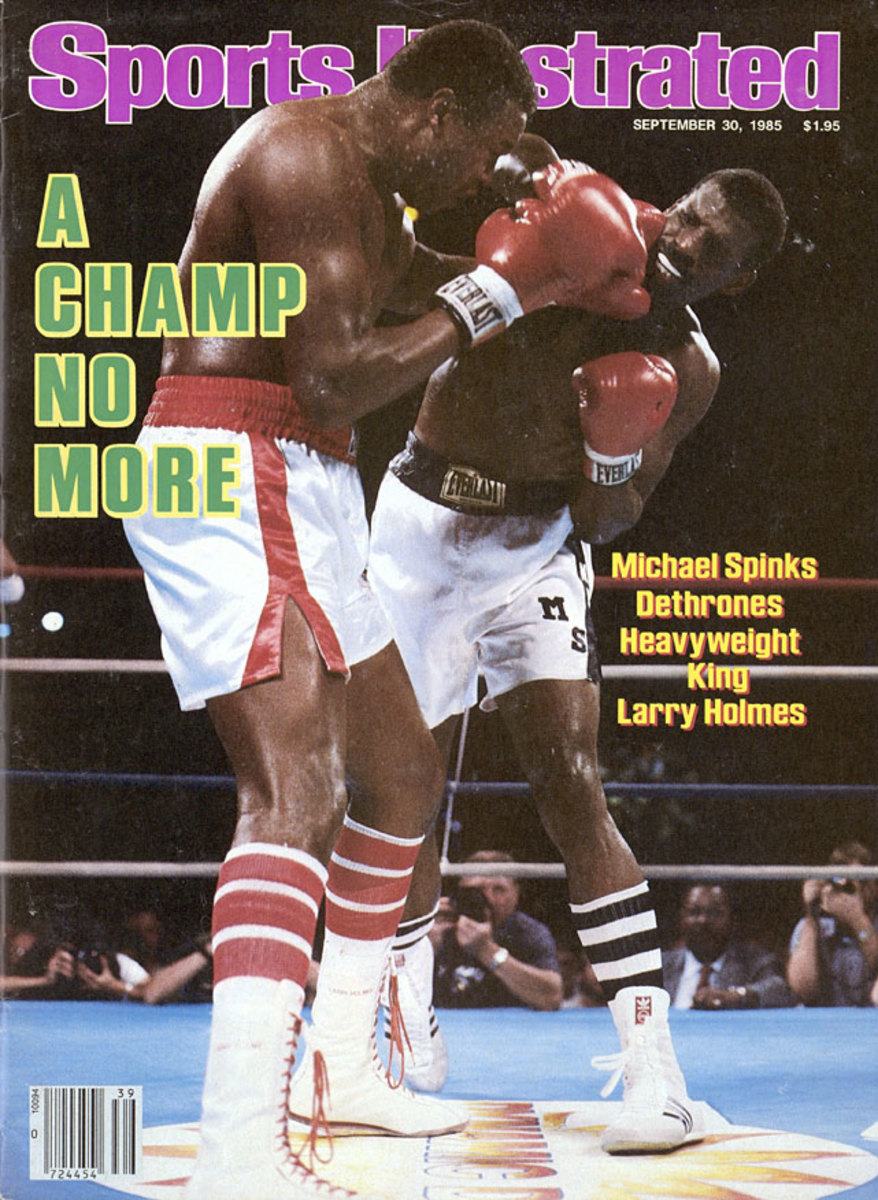
With a controversial unanimous-decision victory, Spinks short-circuited Larry Holmes' highly publicized march toward Rocky Marciano's fabled 49-0 record just one win short of the mark. Ring magazine named it Upset of the Year for 1985, as the St. Louis native became the first reigning light heavyweight champion move up and capture the lineal heavyweight title. After three defenses, Spinks capitulated in 91 seconds against Tyson -- the first and only loss of his pro career -- and never fought again.
Larry Holmes
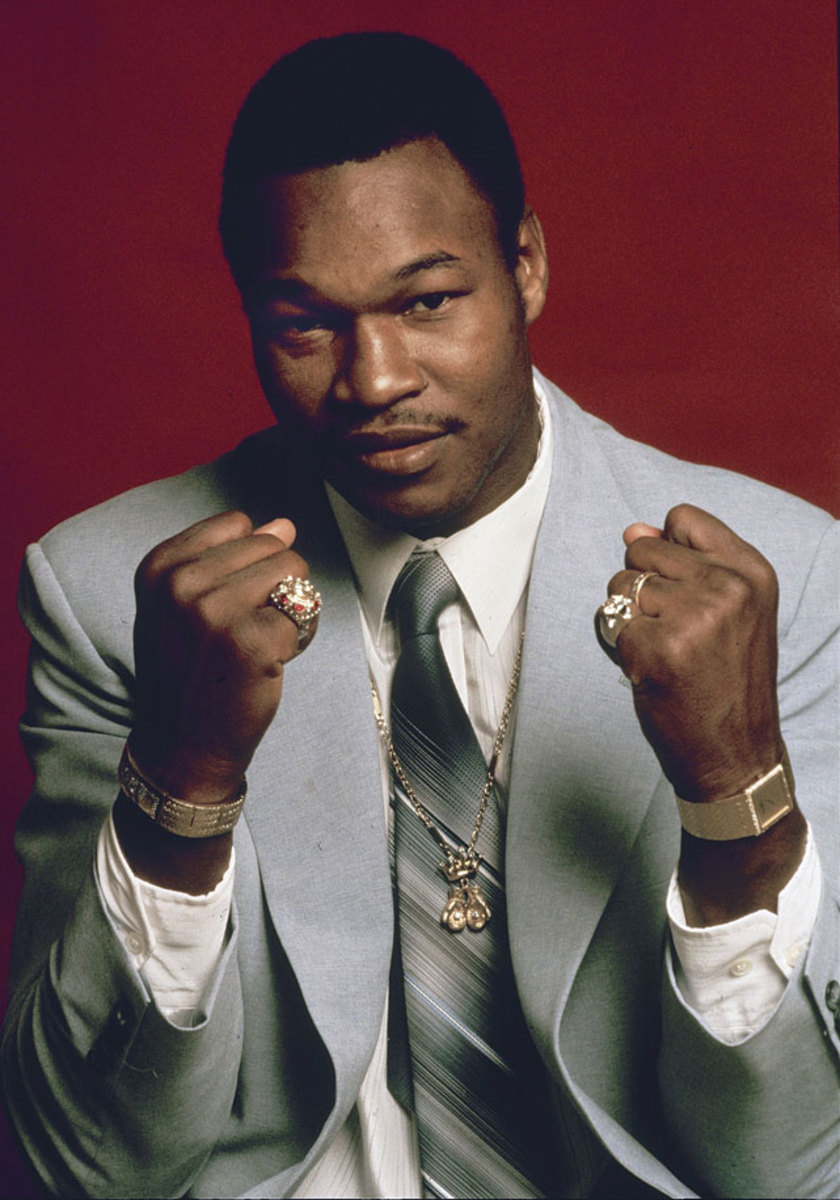
One of history's most underappreciated heavyweight champions, the Easton Assassin captured the WBC heavyweight title with a March 1978 victory over Earnie Shavers and made eight defenses before winning the lineal title with a 1980 stoppage of a faded Ali. Holmes' 20 successful title defenses ranks second only to Joe Louis.
Muhammad Ali

Ali won the title for a record third time with a unanimous decision over Leon Spinks at the Louisiana Superdome, avenging a previous loss to the 1976 Olympic gold medalist.
Leon Spinks
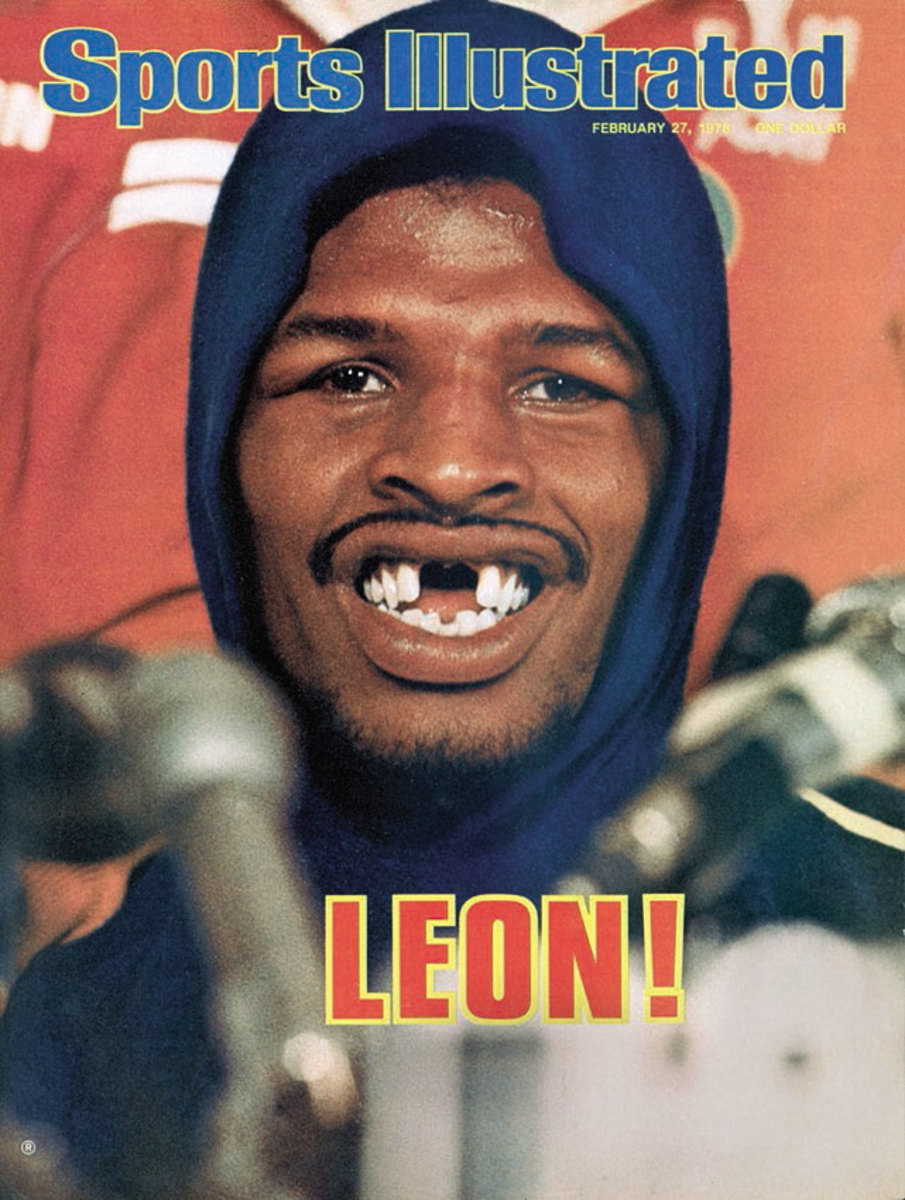
A gold medalist at the 1976 Montreal Olympics, Spinks outpointed Muhammad Ali for the heavyweight title in his eighth pro fight -- the fastest ascent in division history.
Muhammad Ali

Ali engineered one of sports' all-time great upsets by knocking out fearsome George Foreman in Zaire on Oct. 30, 1974 -- a fight immortalized as "The Rumble in the Jungle." Employing the shrewd, now-famous "rope-a-dope" strategy -- leaning on the ropes and absorbing Foreman's ineffective body shots -- Ali waited until the champion punched himself out before dropping him with a well-schooled combination.
George Foreman

After striking gold at the 1968 Olympics, Foreman steamrolled the previously unbeaten Joe Frazier for the title in Jamaica, flooring the champion six times in two rounds.
Joe Frazier
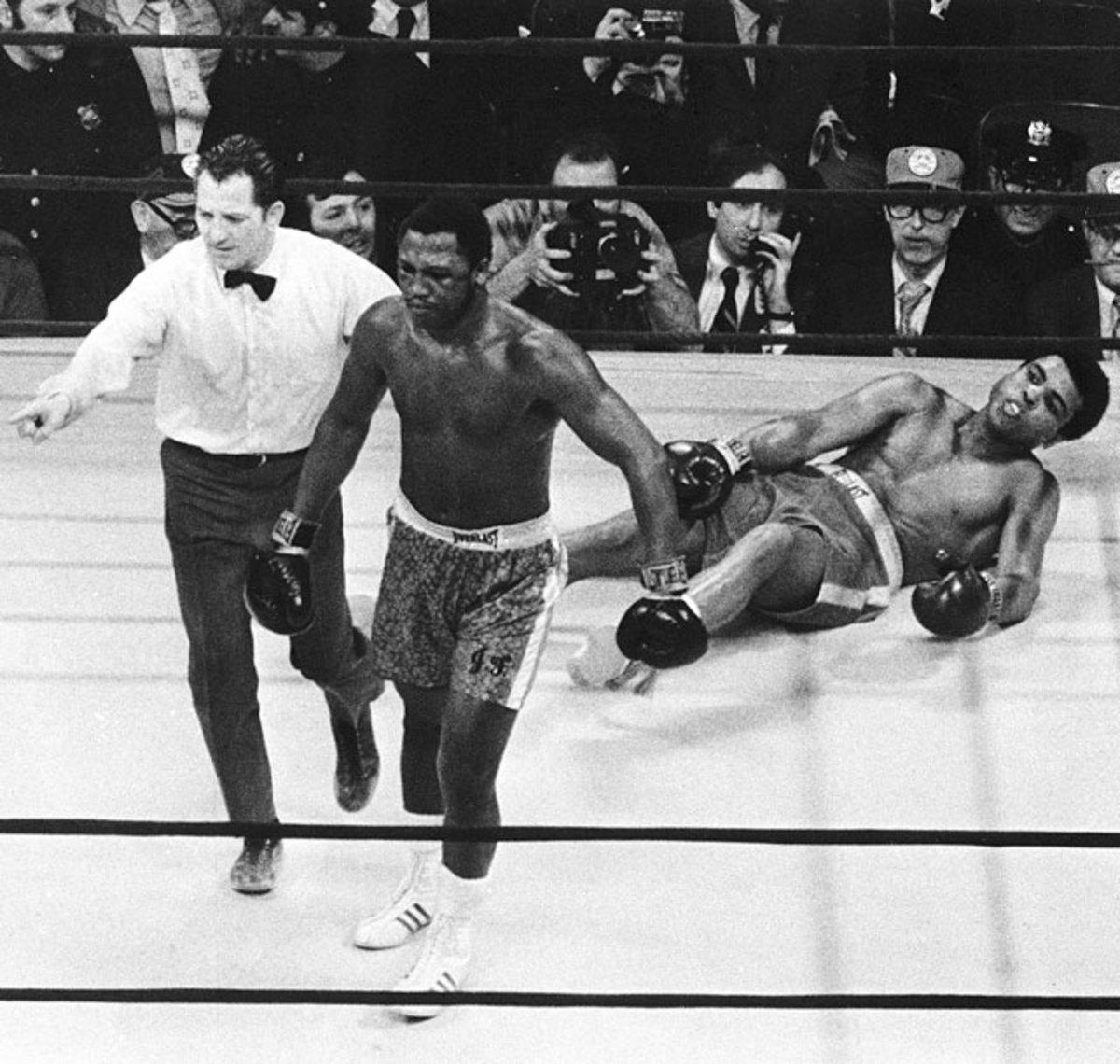
"Smokin' Joe" was already the undisputed world champion by virtue of his 1970 victory over WBA champion Jimmy Ellis, but not until outpointing Muhammad Ali in the first installment of their legendary trilogy did the Philadelphia slugger add the lineal title.
Cassius Clay
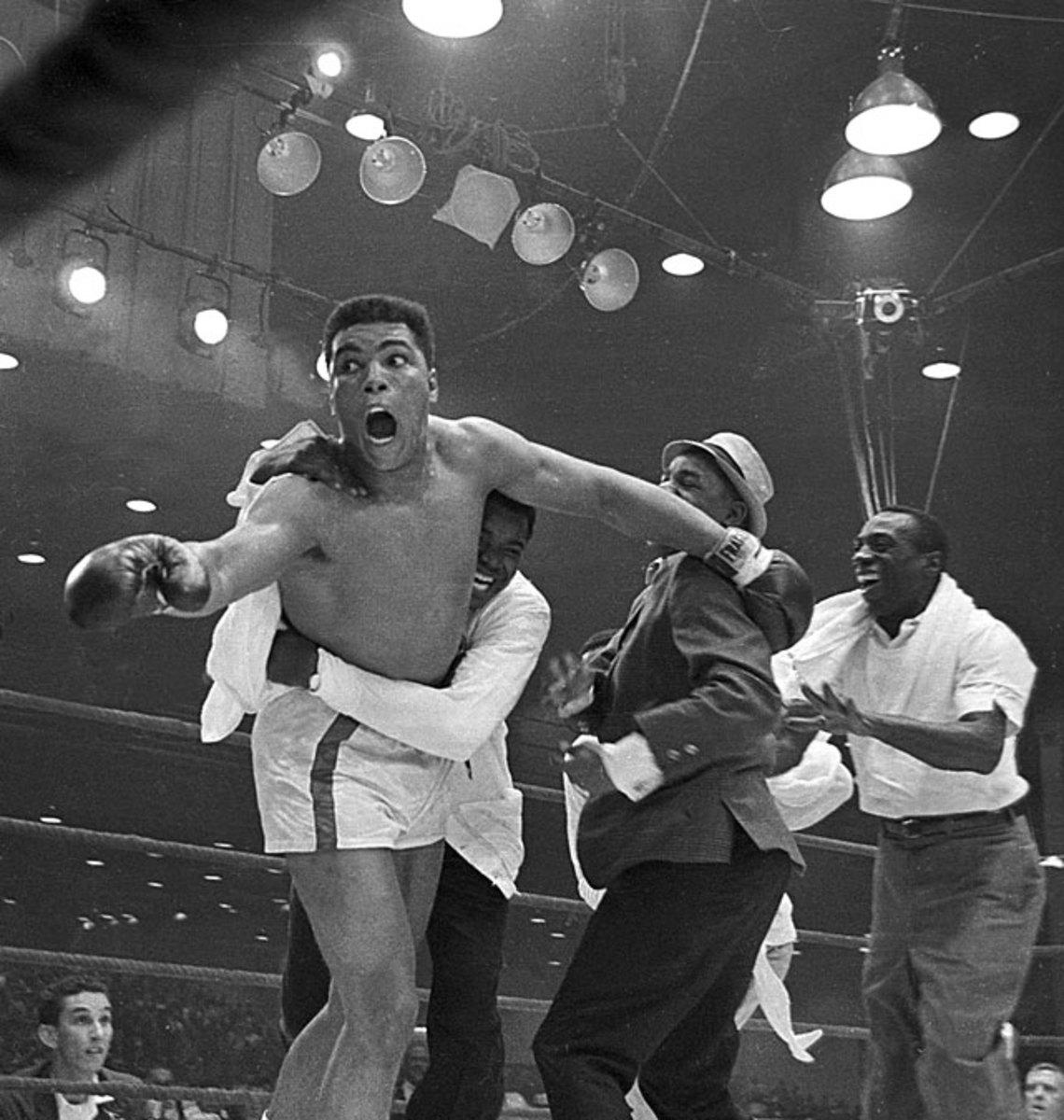
Clay won the title with a stunning upset of Sonny Liston in 1964, winning the rematch as Muhammad Ali the following year. He made nine defenses between 1965 and '67 before he was stripped of his titles after being found guilty on draft evasion charges. He'd eventually lose the lineal title in the ring to Joe Frazier in 1971.
Charles "Sonny" Liston
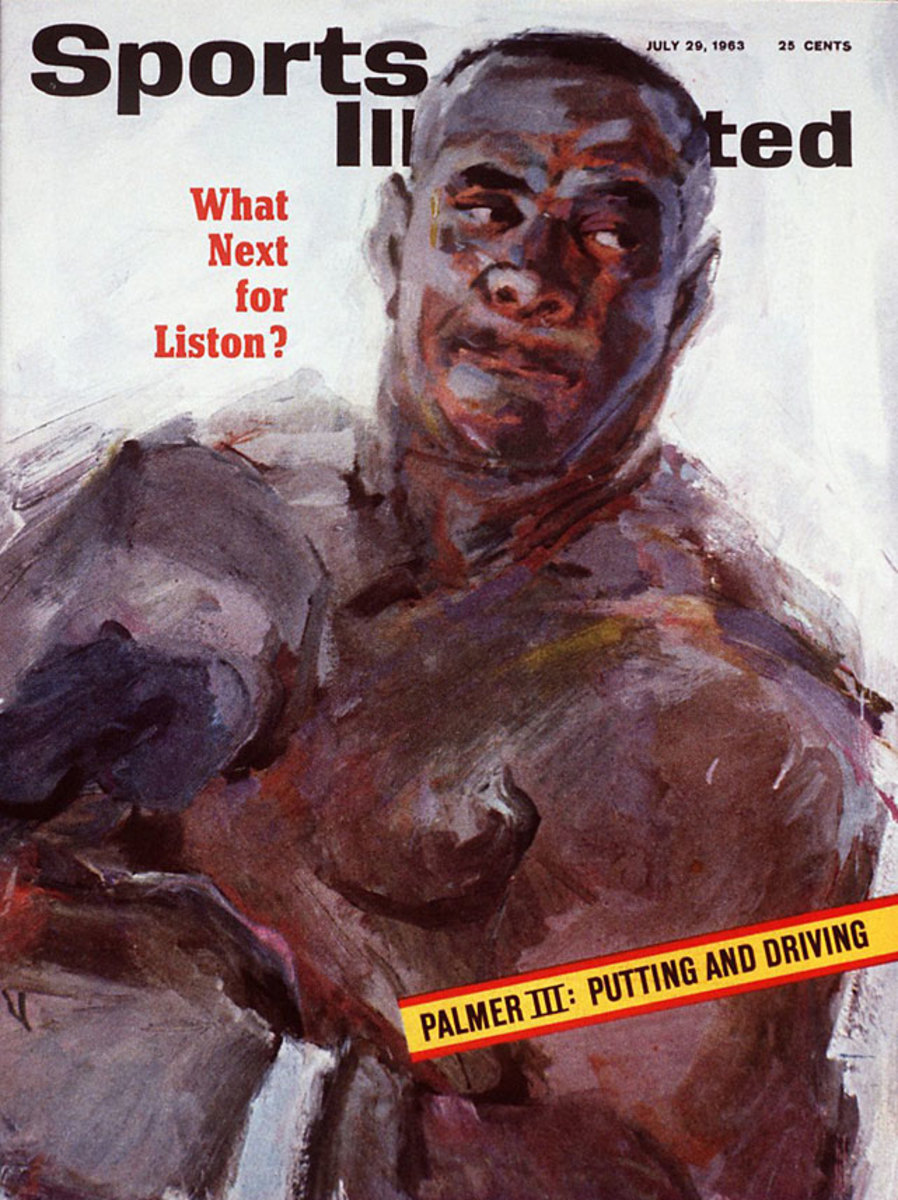
One of the hardest punchers of all time, Liston won the title from Floyd Patterson in explosive fashion, becoming the first man to knock out the reigning heavyweight champion in the first round. He also holds the dubious distinction of being the only reigning champ to quit on his stool, retiring after the sixth round of his 1964 title fight with Muhammad Ali.
Floyd Patterson
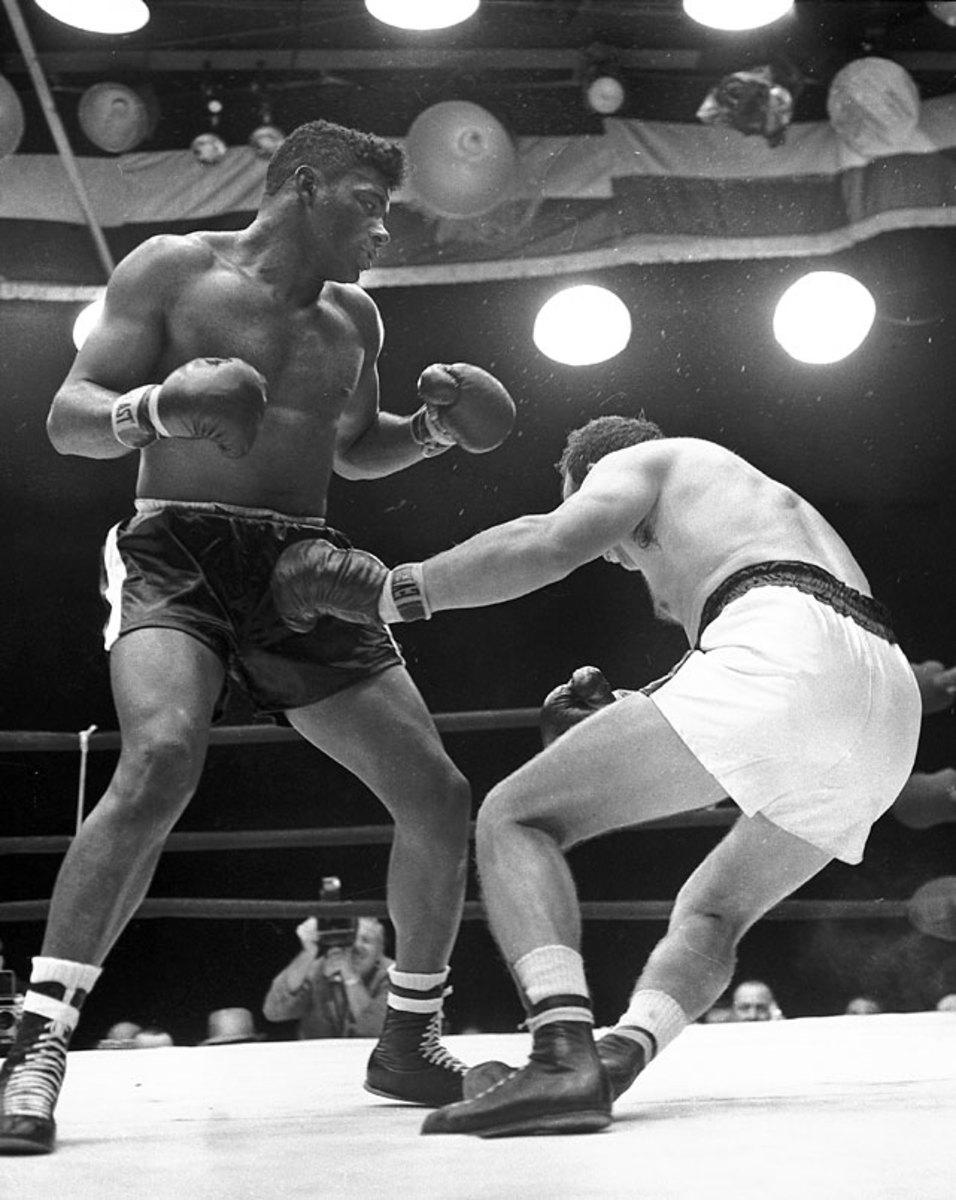
Patterson became the first man in history to regain the undisputed heavyweight title, knocking out Ingemar Johansson in the fifth round of their rematch.
Ingemar Johansson
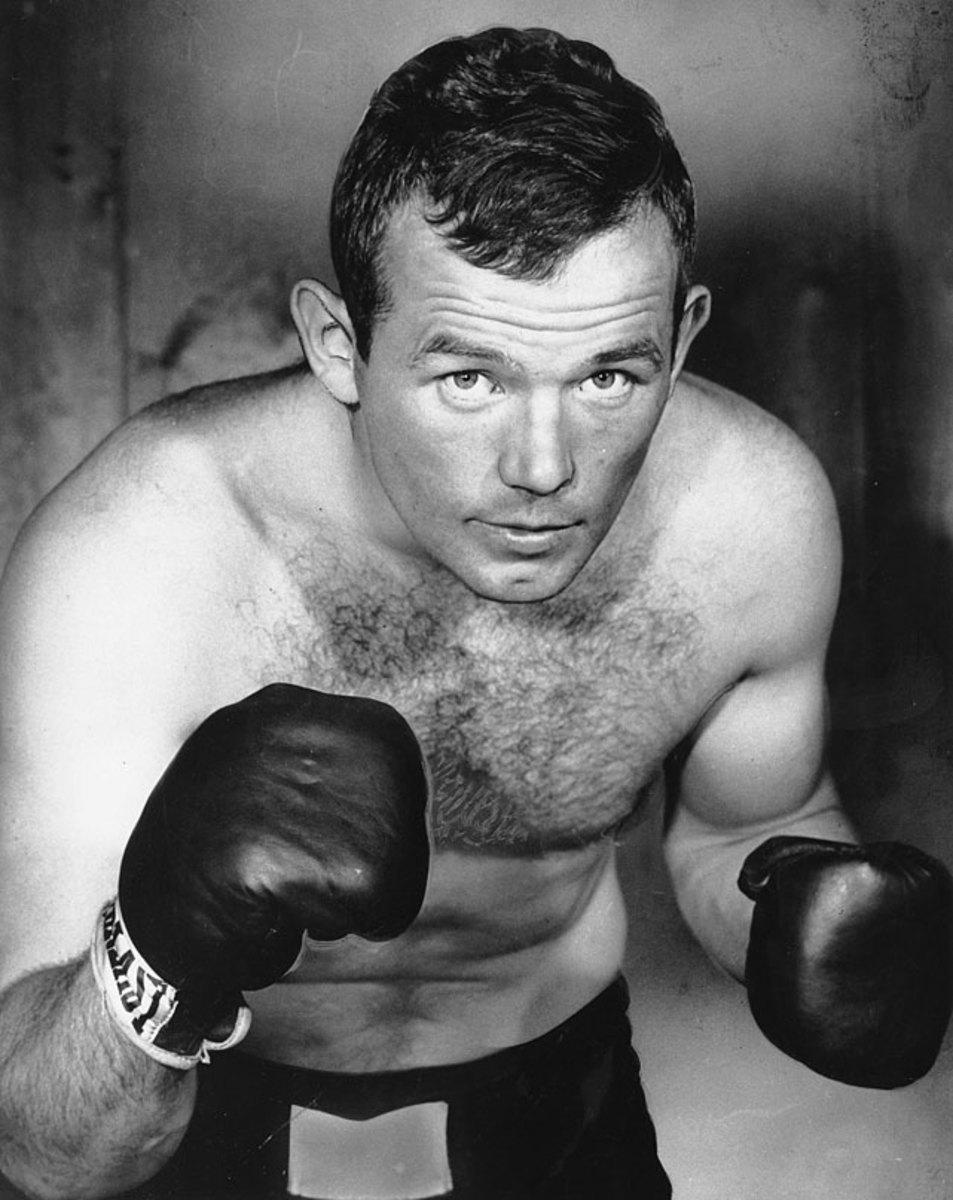
The Swede, who dubbed his right fist "toonder and lightning" for its concussive power, scored a third-round TKO over Floyd Patterson at Yankee Stadium to win the title. He'd become the first of three boxers to be named Sports Illustrated Sportsman of the Year (Muhammad Ali, Sugar Ray Leonard).
Floyd Patterson

When Rocky Marciano retired in 1956 -- the second of three interruptions of the heavyweight title linage -- a six-man tournament was held to determine a recognized heavyweight champion. Patterson, a gold medalist at the 1952 Olympics in Helsinki, beat Archie Moore in the final to become the youngest world heavyweight champion in history at 21 years and 10 months. (The mark would later be broken by fellow Cus D'Amato protege Mike Tyson.)
Rocky Marciano
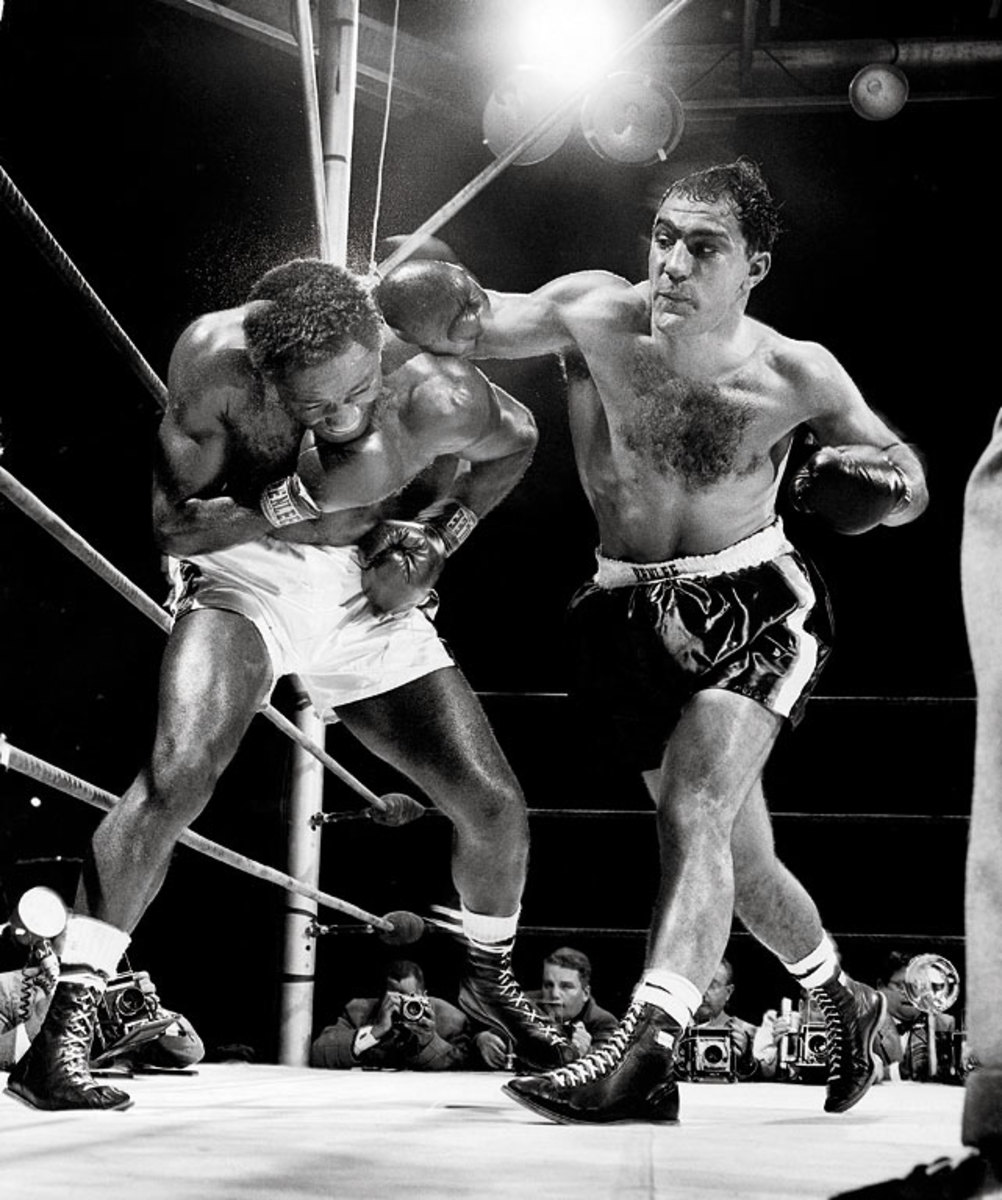
The Brockton Blockbuster was behind on points against heavyweight champ Jersey Joe Walcott when he connected with his famous "Suzie Q" in the 13th round and recorded a devastating knockout to win the title. After six defenses, he'd become the first and only heavyweight champion to retire undefeated.
"Jersey" Joe Walcott
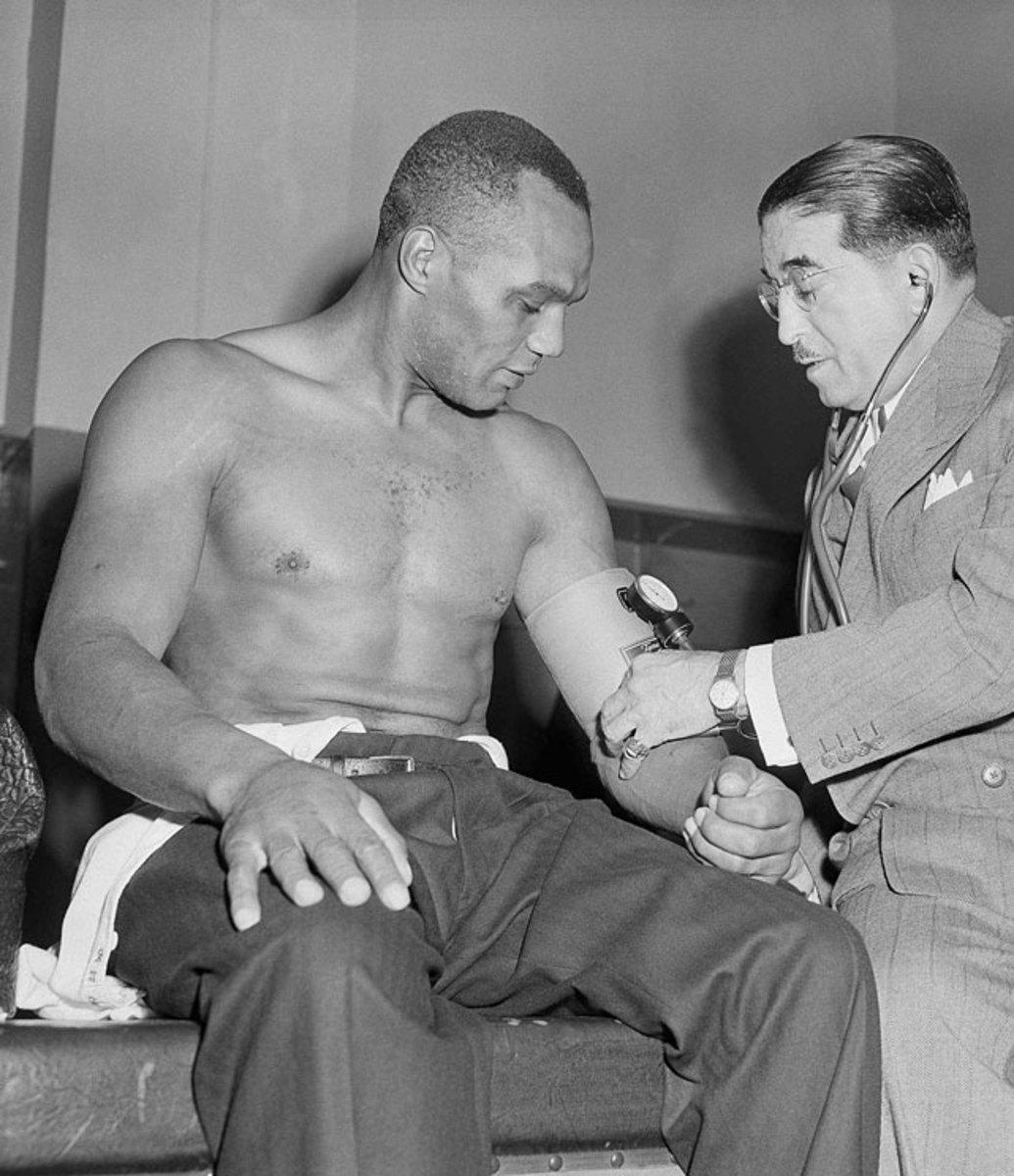
After four failed bids for the world title, the 37-year-old Walcott knocked out Ezzard Charles in seven rounds in Pittsburgh to win the championship. He was the oldest man to win the heavyweight title in history until George Foreman broke his mark 43 years later.
Ezzard Charles
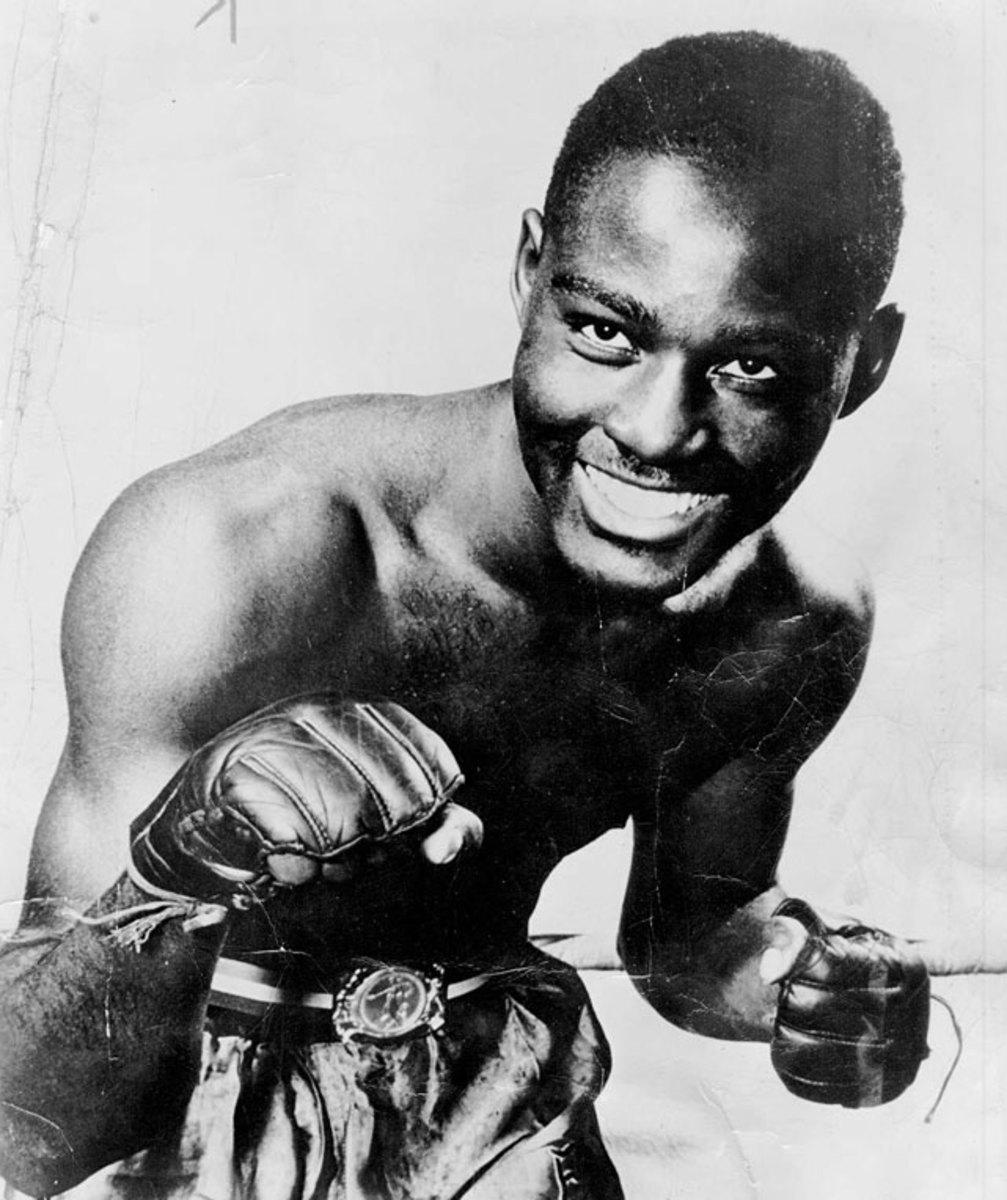
The Cincinnati Cobra outpointed Jersey Joe Walcott for the vacant NBA world heavyweight title in 1949, but secured the lineal title with a unanimous decision over ex-champ Joe Louis on Sept. 27, 1950.
Joe Louis
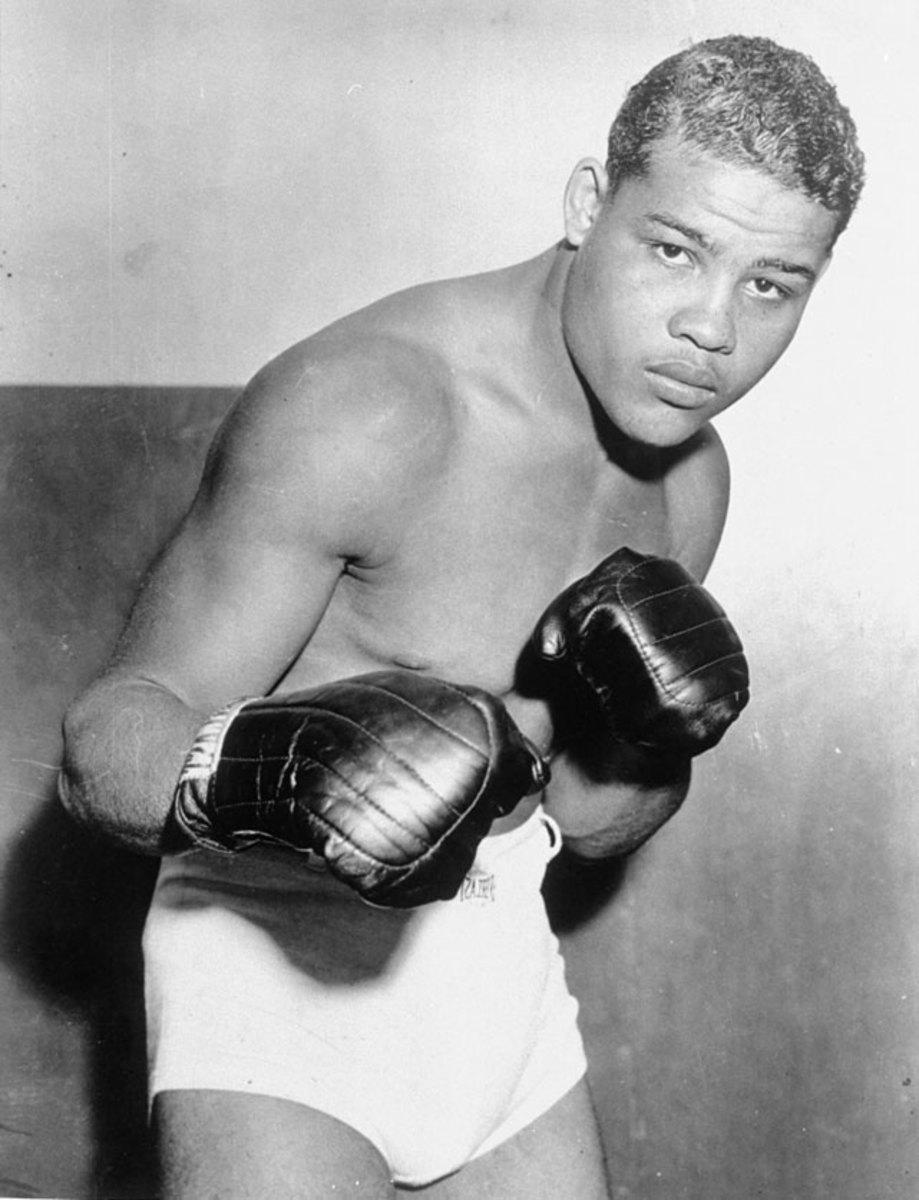
Perhaps the greatest heavyweight of all time, Louis rallied from a first-round knockdown to stop James J. Braddock in eight rounds for the title in 1937. He'd make a division-record 25 title defenses throughout a championship reight that spanned 140 consecutive months.
James J. Braddock
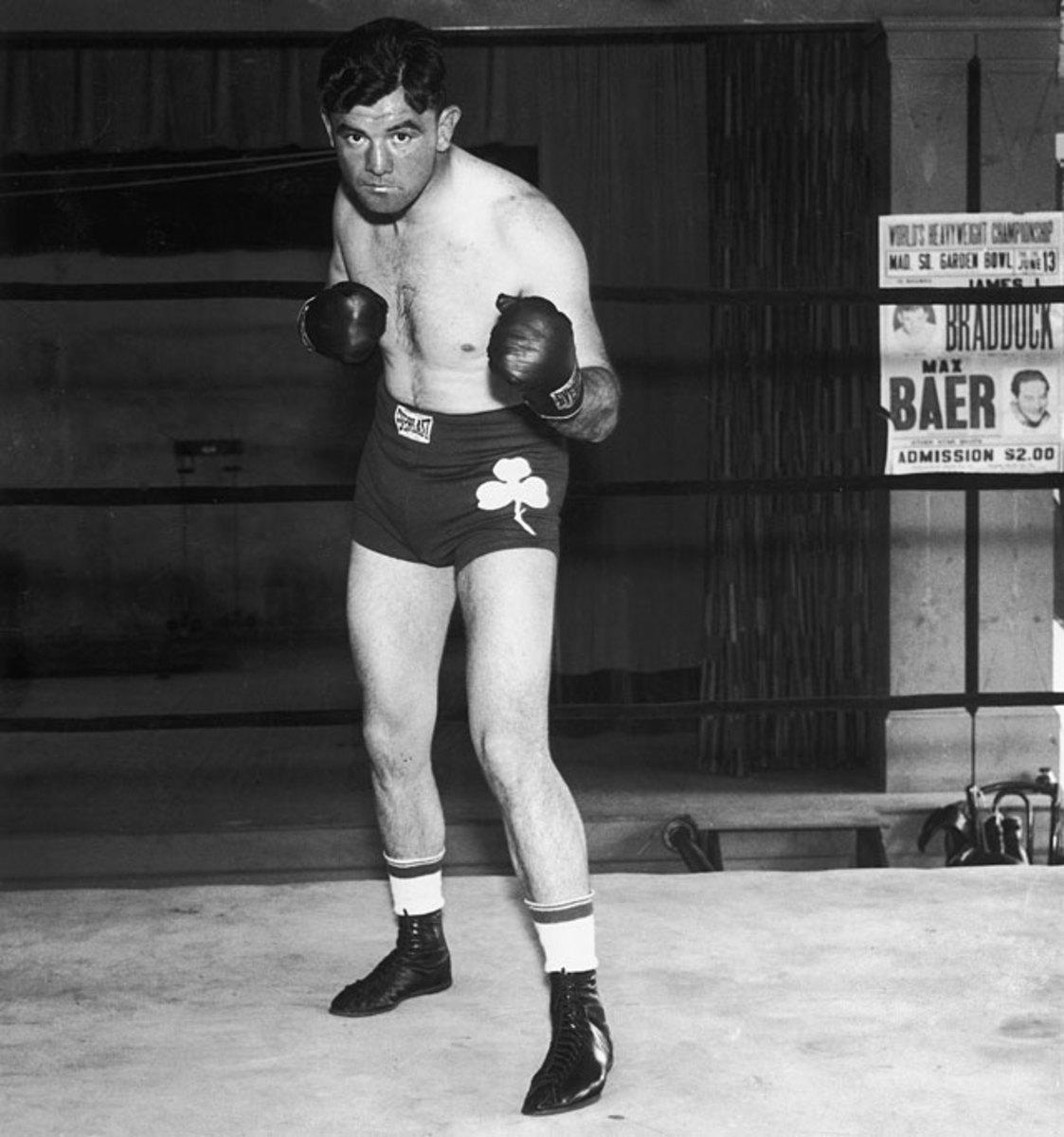
A 10-to-1 underdog, "The Cinderella Man" unexpectedly defeated heavyweight champion Max Baer at the Madison Square Garden Bowl on June 13, 1935.
Max Baer
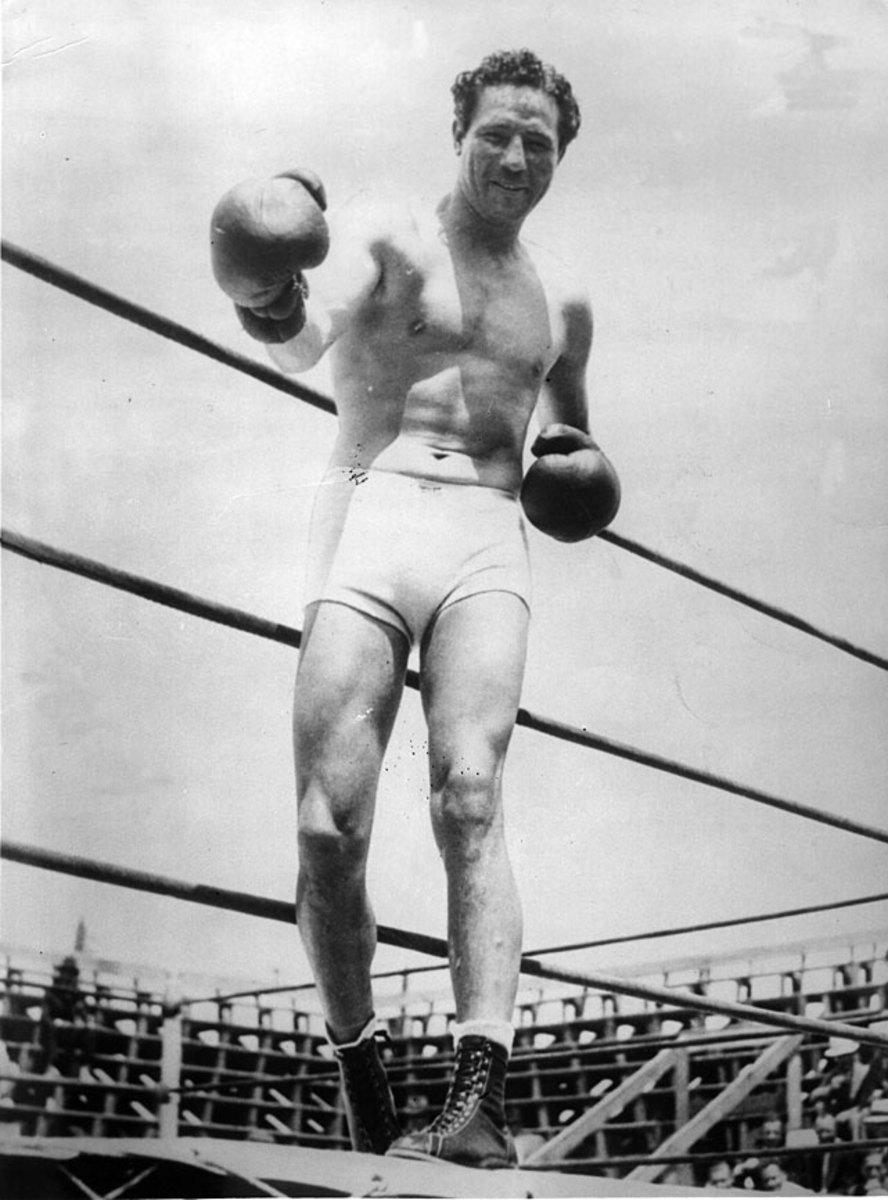
Baer floored reigning champ Primo Carnera no less than 11 times before the referee stopped the fight in the 11th round.
Primo Carnera
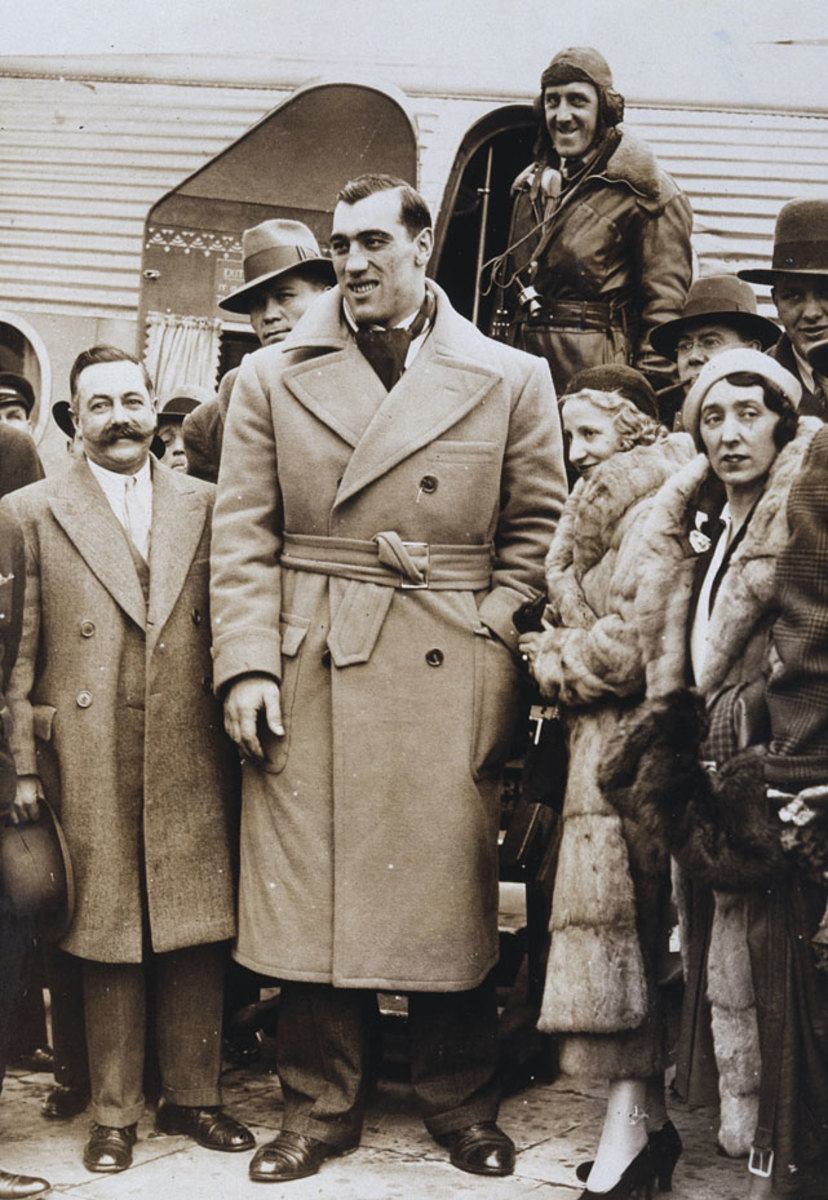
The Ambling Alp tipped the scales at 260½ pounds when he stopped Jack Sharkey in the sixth round to win the world heavyweight title on June 29, 1933.
Jack Sharkey
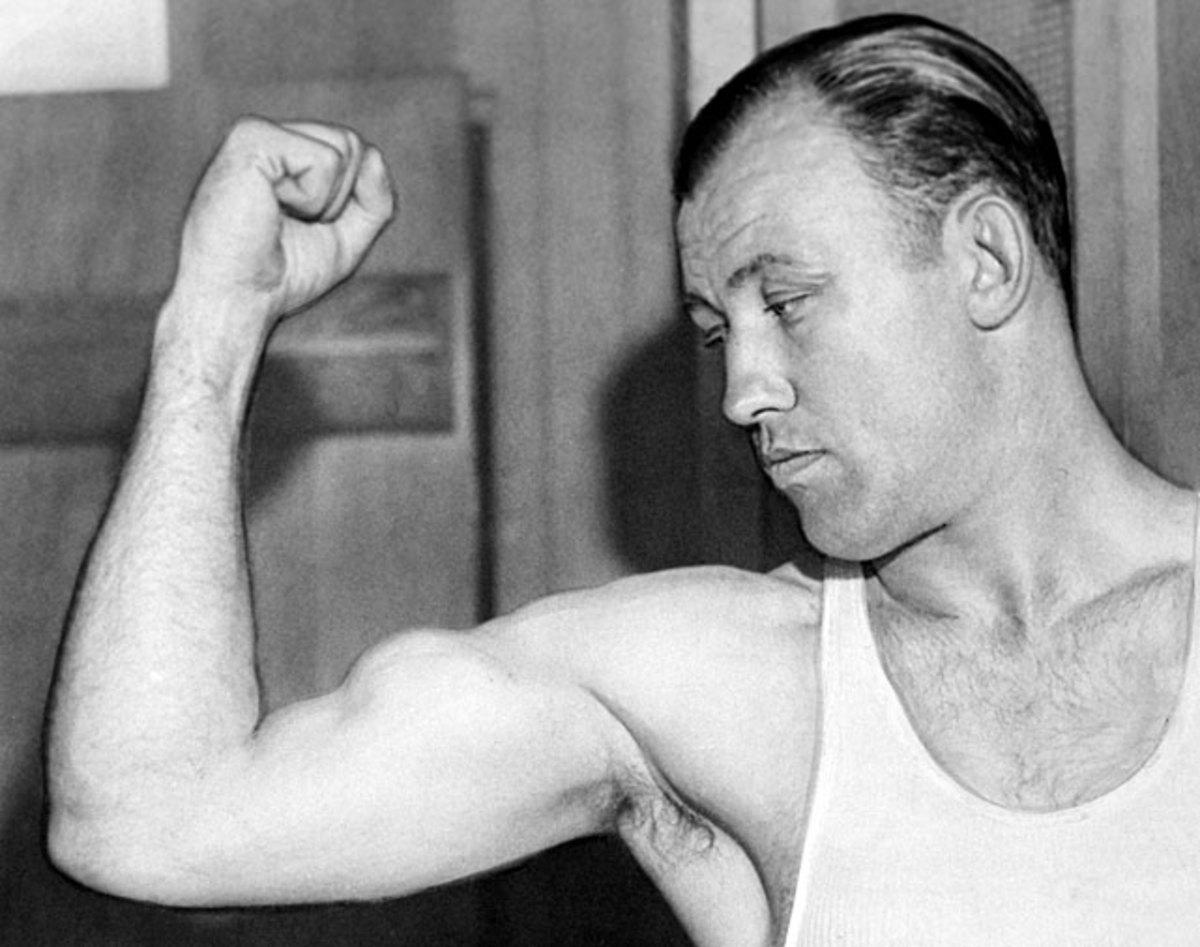
Sharkey outpointed Germany's Max Schmeling in a controversial split decision to win the title on June 21, 1932.
Max Schmeling
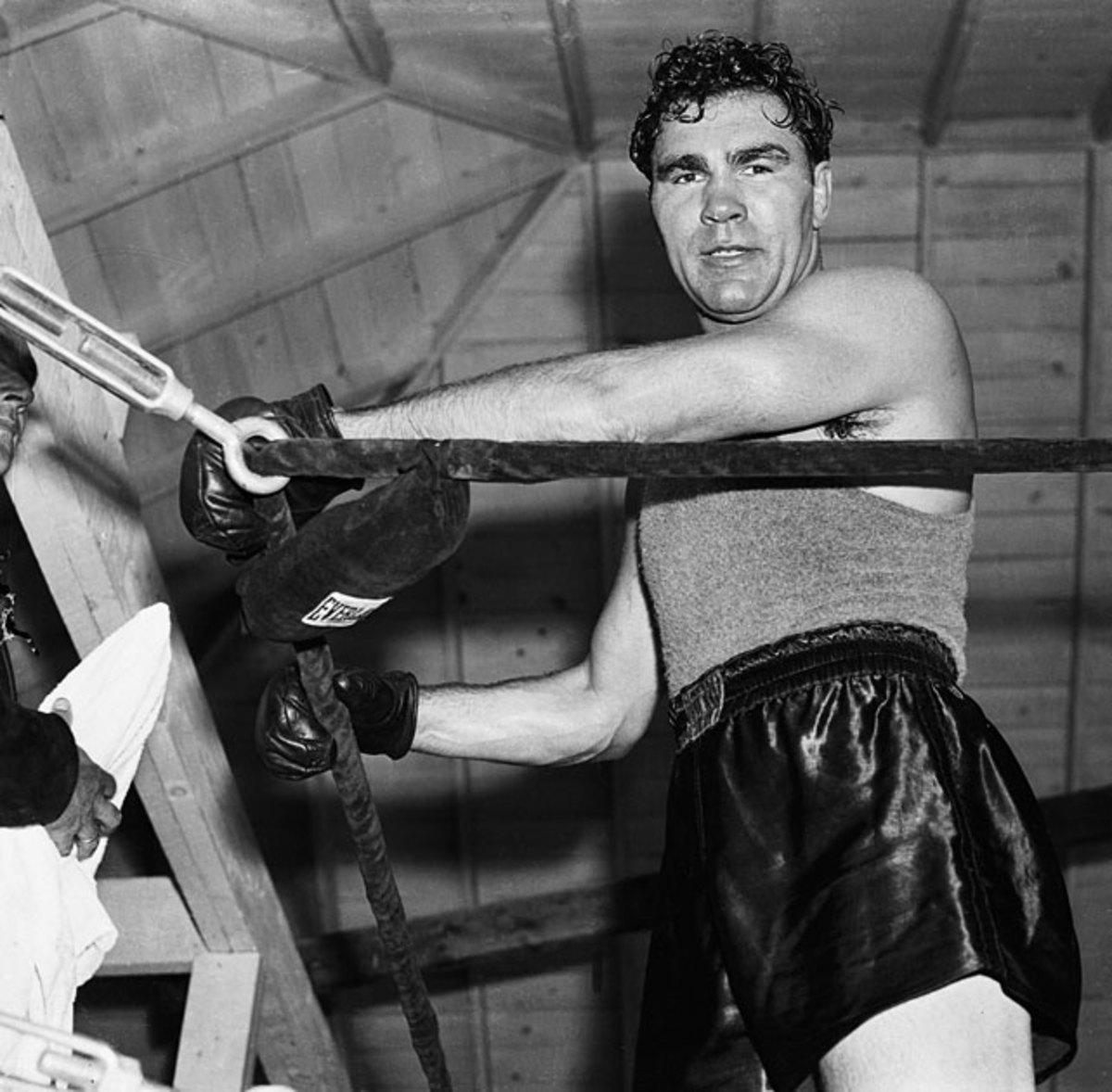
When Gene Tunney retired as champion -- the first of three interruptions of the heavyweight title lineage -- Schmeling fought veteran contender Jack Sharkey for the recognized title on Dec. 6, 1930. He became the first and only heavyweight to win the title on a foul when Sharkey was disqualified in the fourth round for a low blow.
Gene Tunney
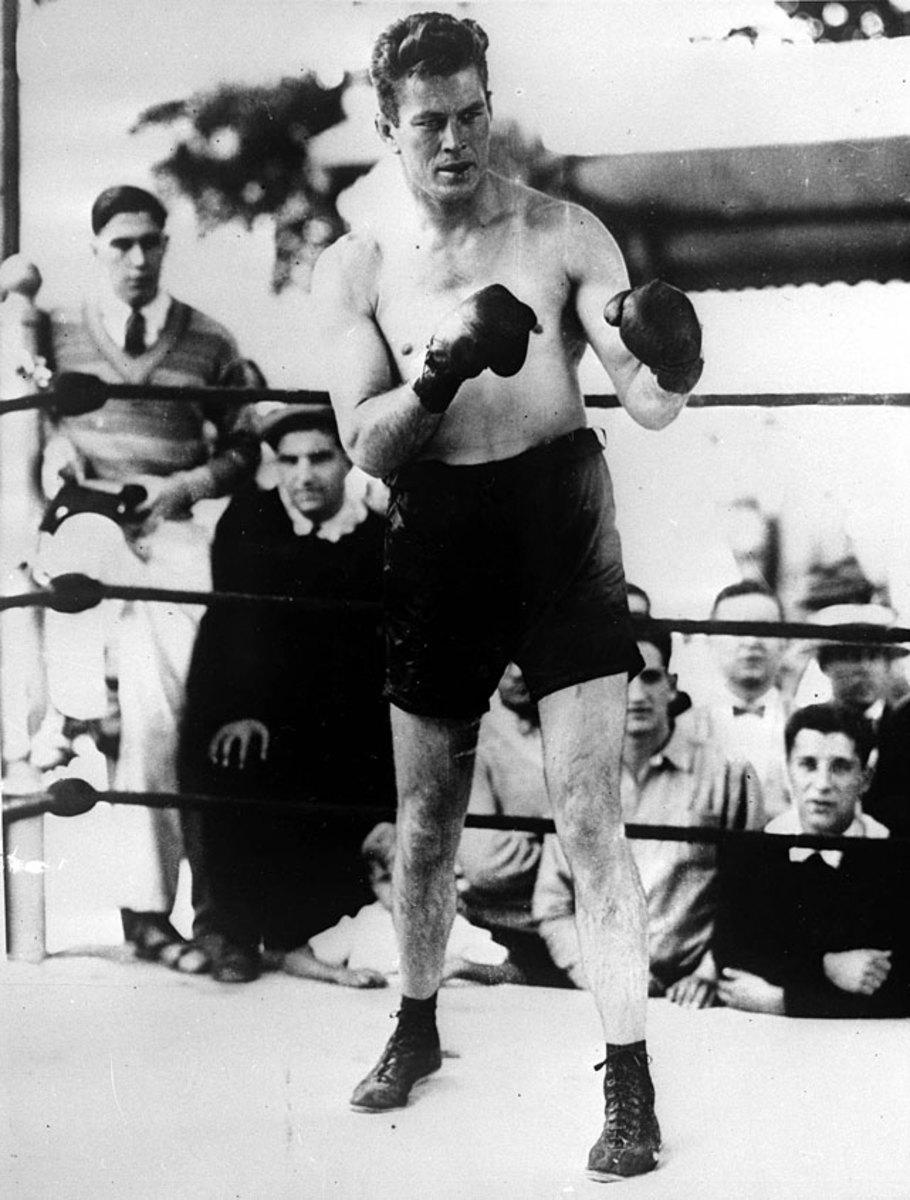
The Fighting Marine won the title from Jack Dempsey in 1926 and defended it in their rematch -- the so-called Long Count Fight. He retired as an undefeated heavyweight after his 1928 victory over Tom Heeney. (His lone defeat came against Harry Greb at light heavyweight.)
Jack Dempsey
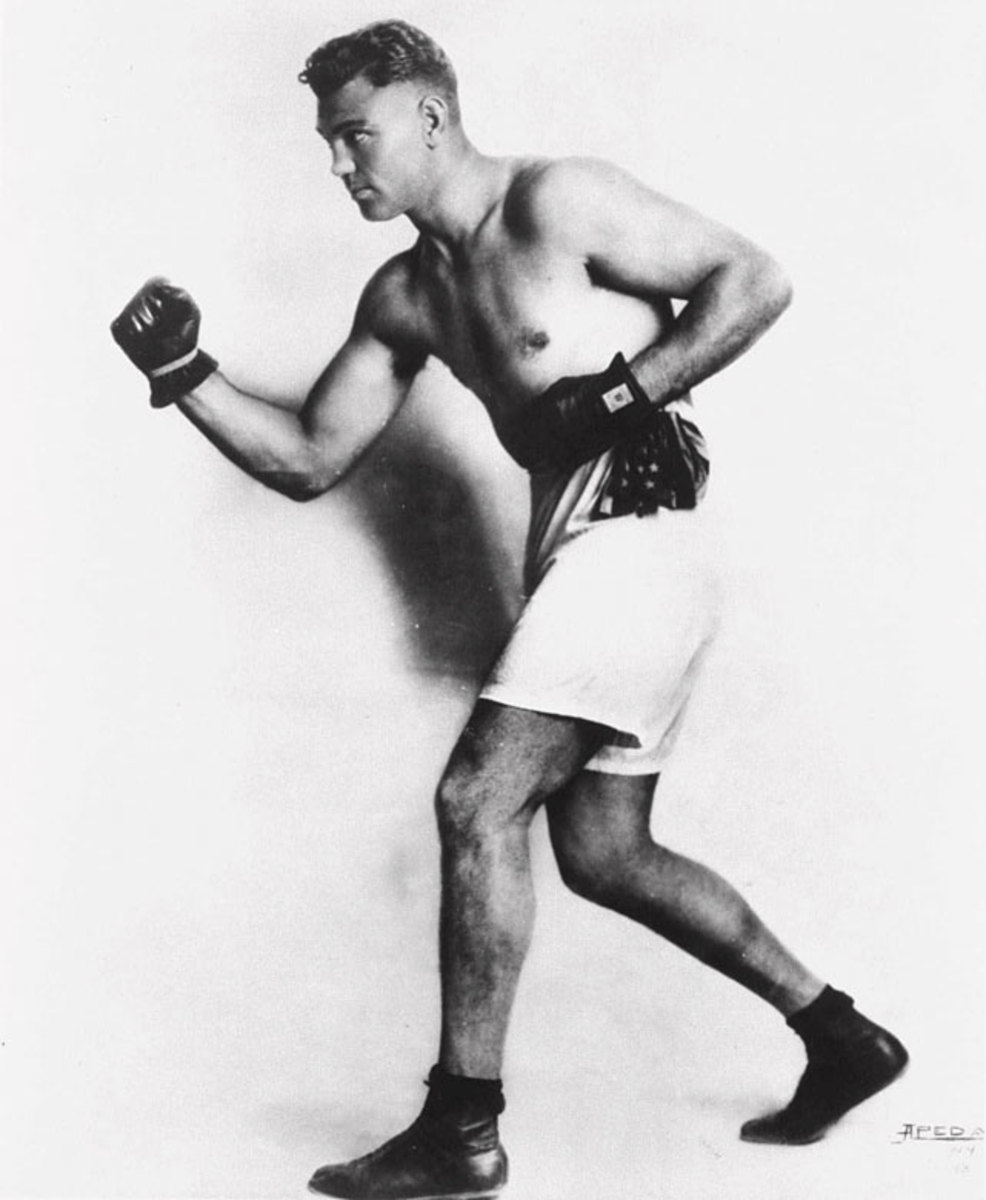
One of the most popular champions in history, the Manassa Mauler won the championship with a brutal stoppage of Jess Willard on July 4, 1919. He'd lose it to Gene Tunney seven years later before 120,557 fans at Philadelphia's Sesquicentennial Stadium.
Jess Willard
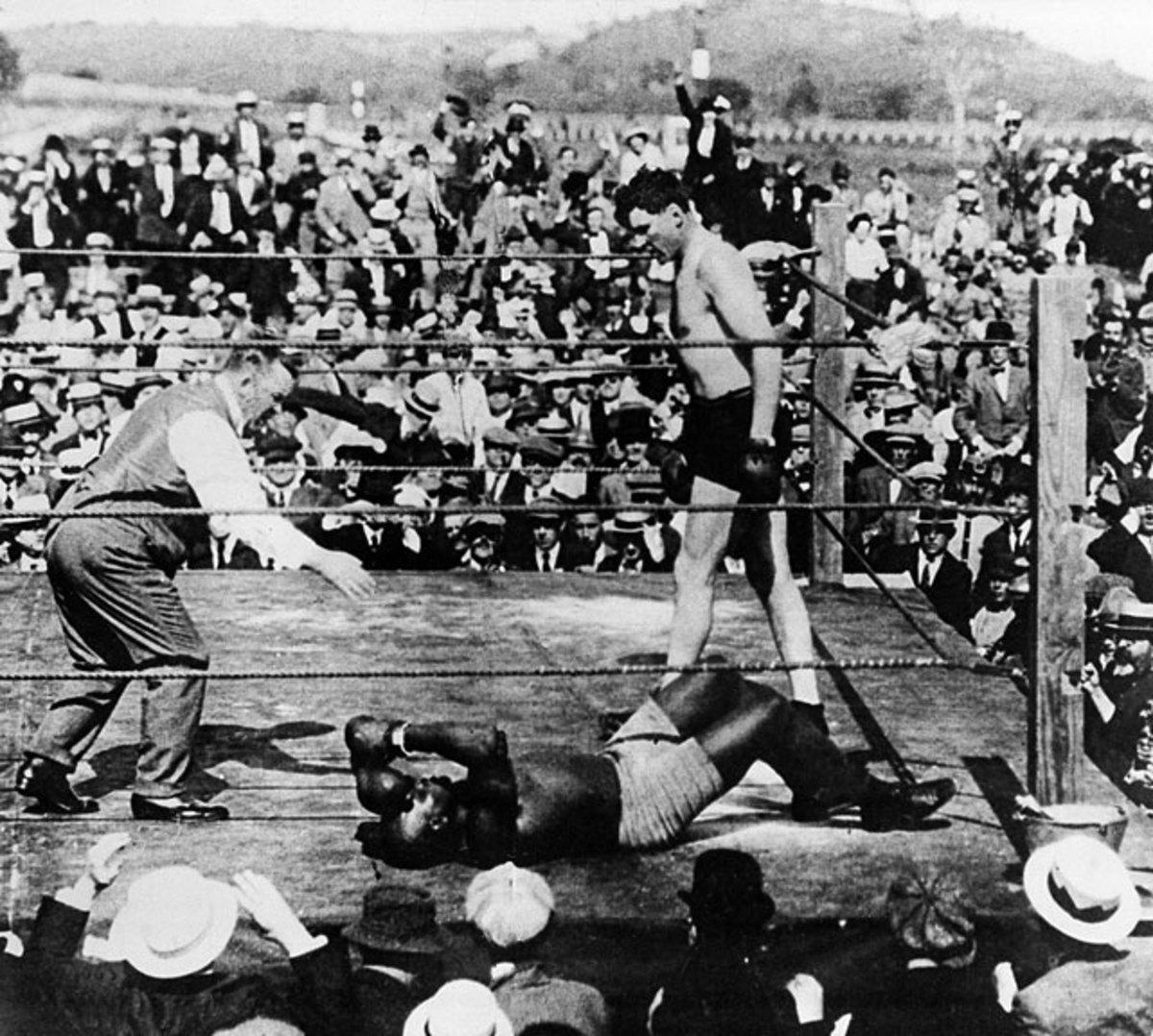
Nicknamed "The Great White Hope," Willard stopped Jack Johnson in the 26th round to win the title at Havana's Oriental Park Racetrack in 1915.
Jack Johnson

The Galveston Giant was the first African-American heavyweight champion and became a notorious figure for his brash and unapologetic demeanor outside the ring. One of the most brilliant defensive fighters in history, Johnson defeated Tommy Burns in Sydney after stalking him for two years in order to get a title shot.
Tommy Burns
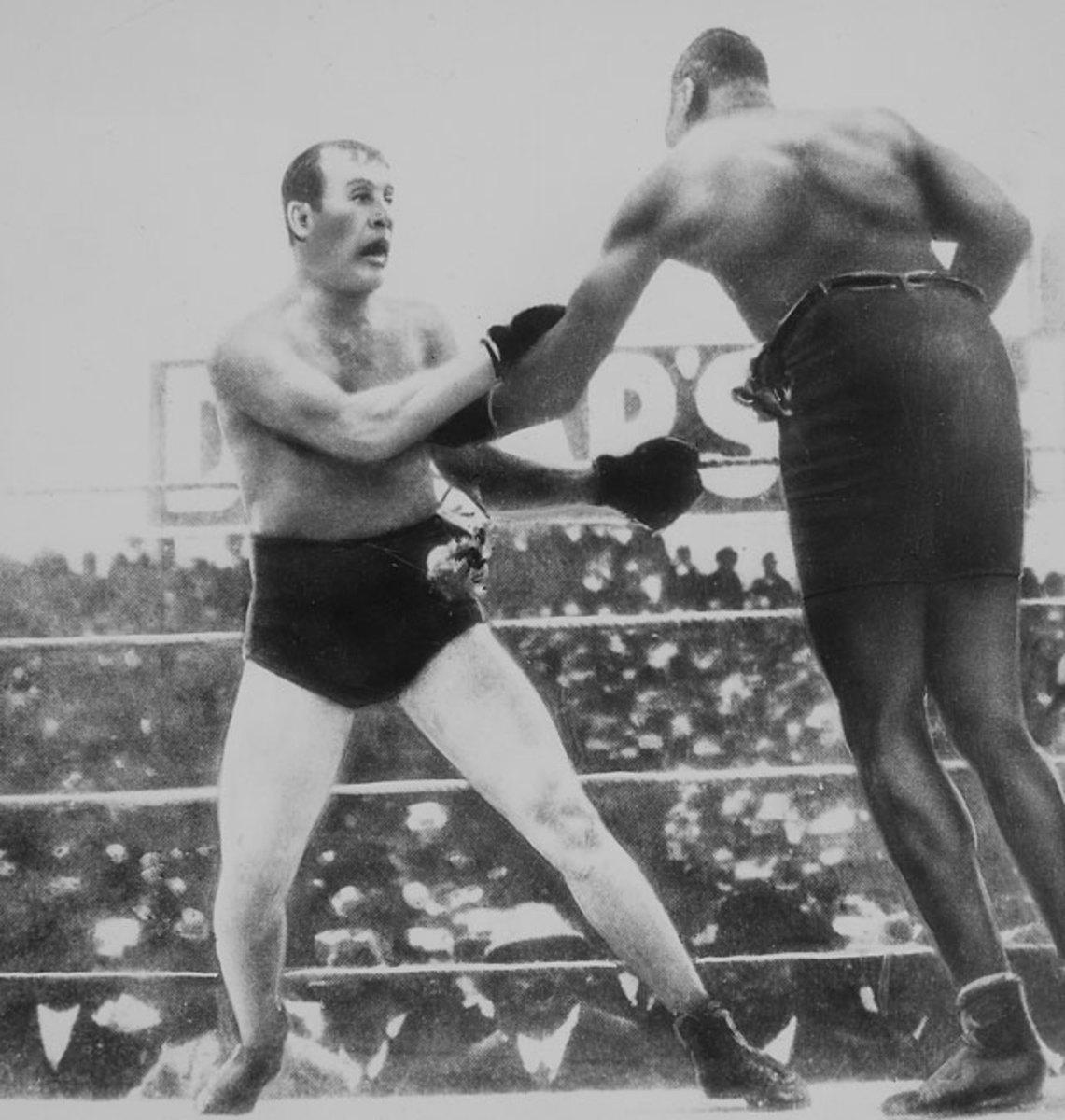
Burns won the title from Marvin Hart on points and made 11 title defenses -- often as an underdog due to his modest 5-foot-7 stature -- before losing it to Jack Johnson.
Marvin Hart
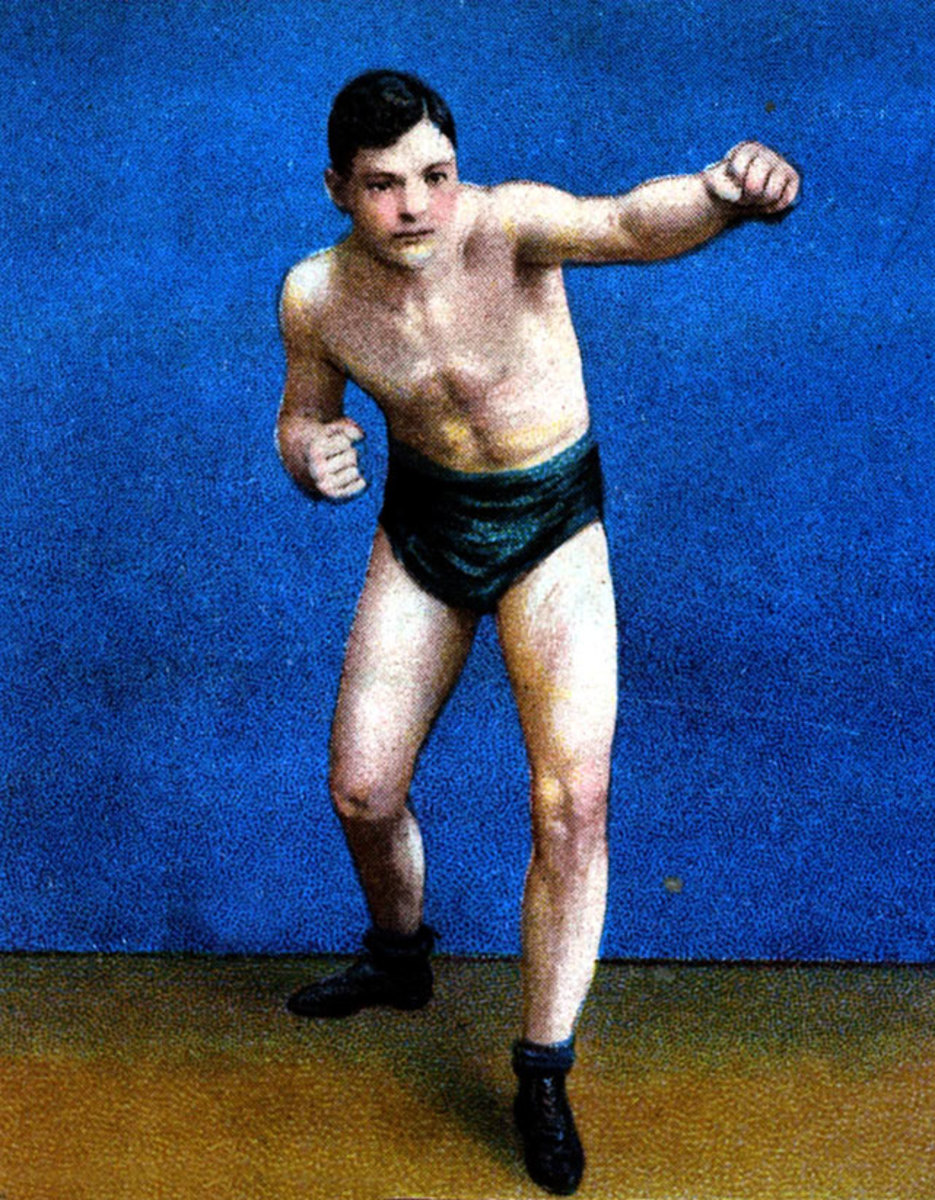
Hart knocked out Jack Root for the title in a fight refereed by retired champ James J. Jeffries. Jeffries "awarded" the title to Hart after the match.
James J. Jeffries
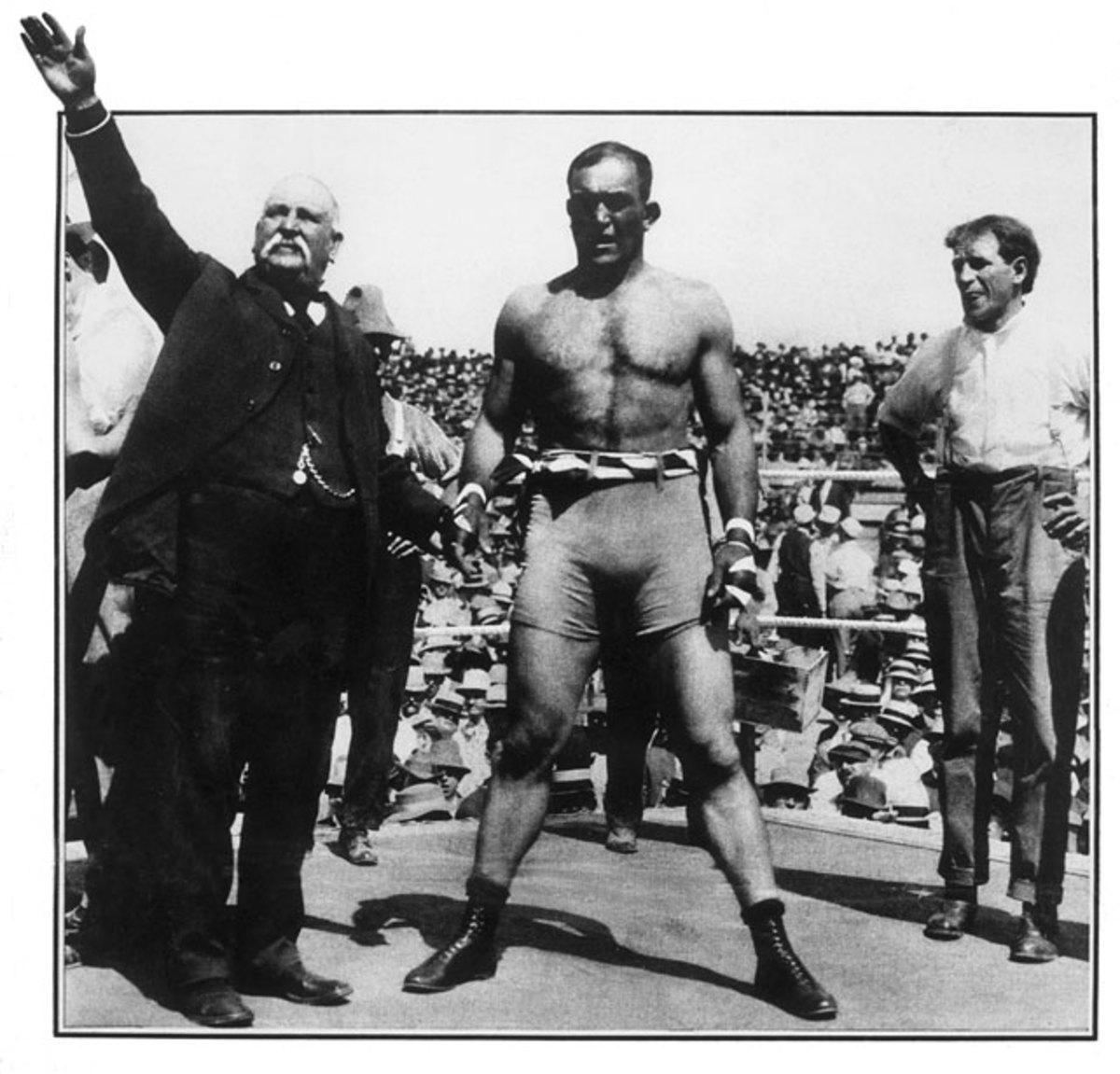
Jeffries won the title from Bob Fitzsimmons at the Coney Island Athletic Club in Brooklyn. He'd retire as champion in 1904, symbolically bequeathing the title to Marvin Hart, but came out of retirement six years later in a failed bid for Jack Johnson's title -- thus restoring the lineage.
Bob Fitzsimmons
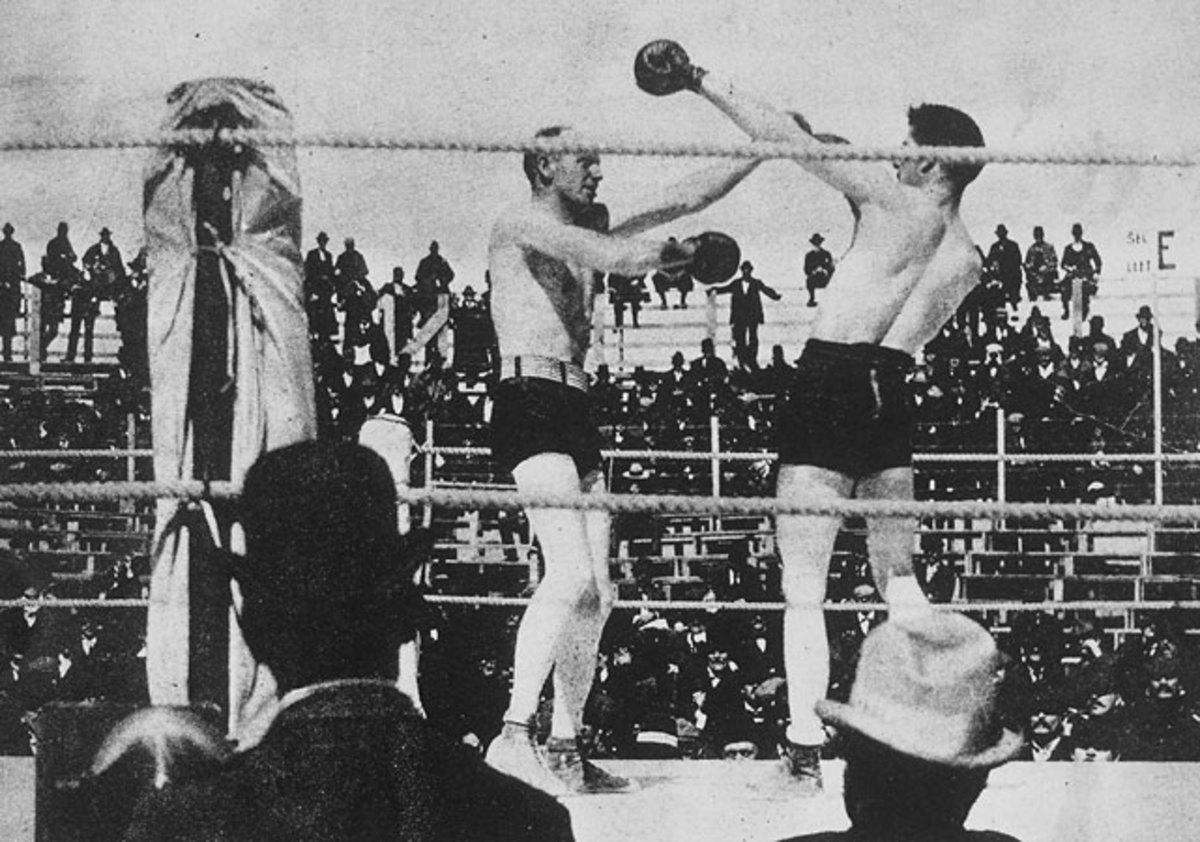
Fitzsimmons stopped Peter Maher in an 1896 fight that was billed as a world heavyweight title fight, but didn't win the recognized lineal title until knocking out James J. Corbett in 14 rounds the following year.
James J. Corbett
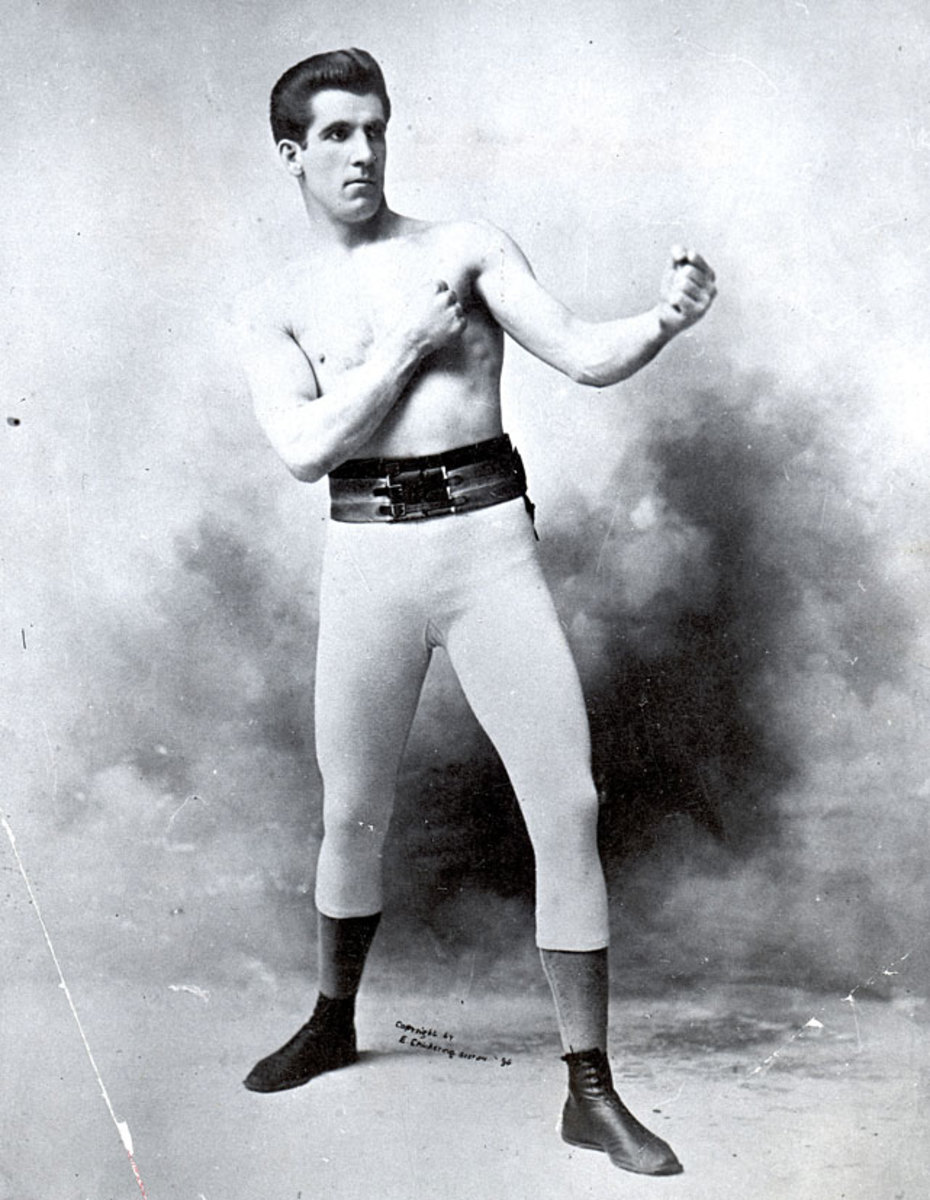
Gentleman Jim is known as the father of modern boxing due to his scientific approach to the sport, a technique that enabled him to confound and defeat John L. Sullivan in New Orleans on Sept. 7, 1892. (Remarked Sullivan: "If I had to get licked I'm glad I was licked by an American.")
John L. Sullivan
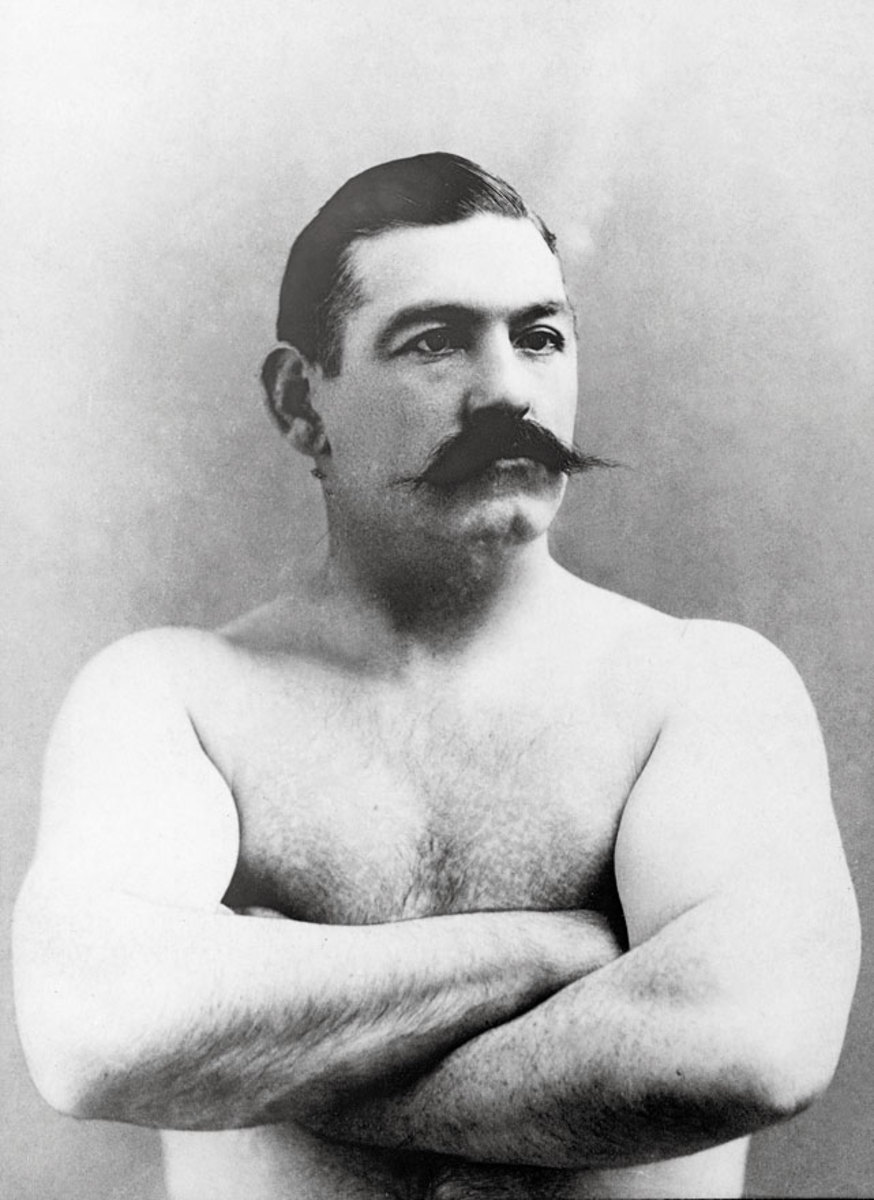
The last bare-knuckle champion from the days prior to the Marquess of Queensberry rules, the Boston Strong Boy was the first American athlete to become a national celebrity. His lone recognized defeat came against James J. Corbett in his final fight.
